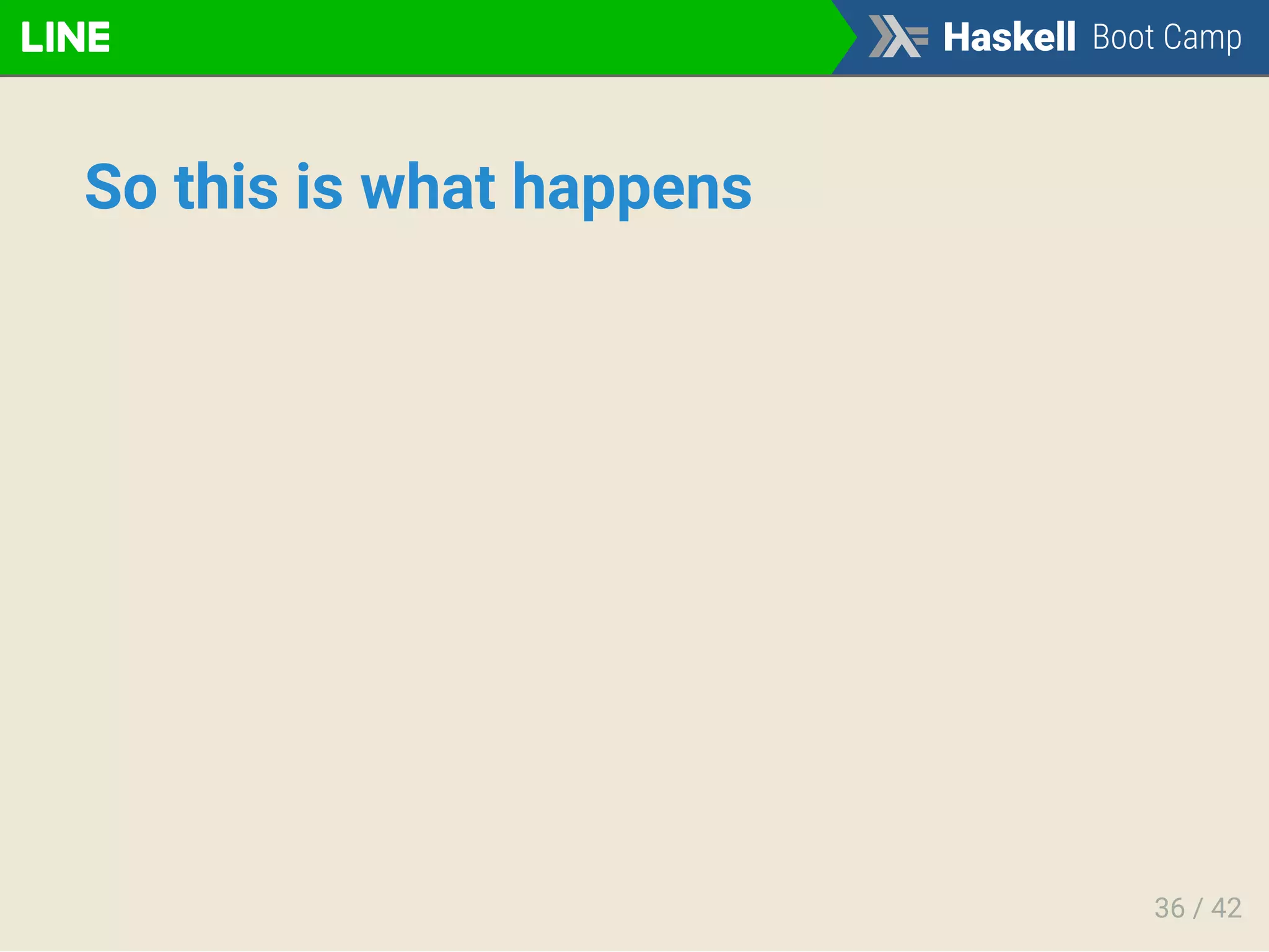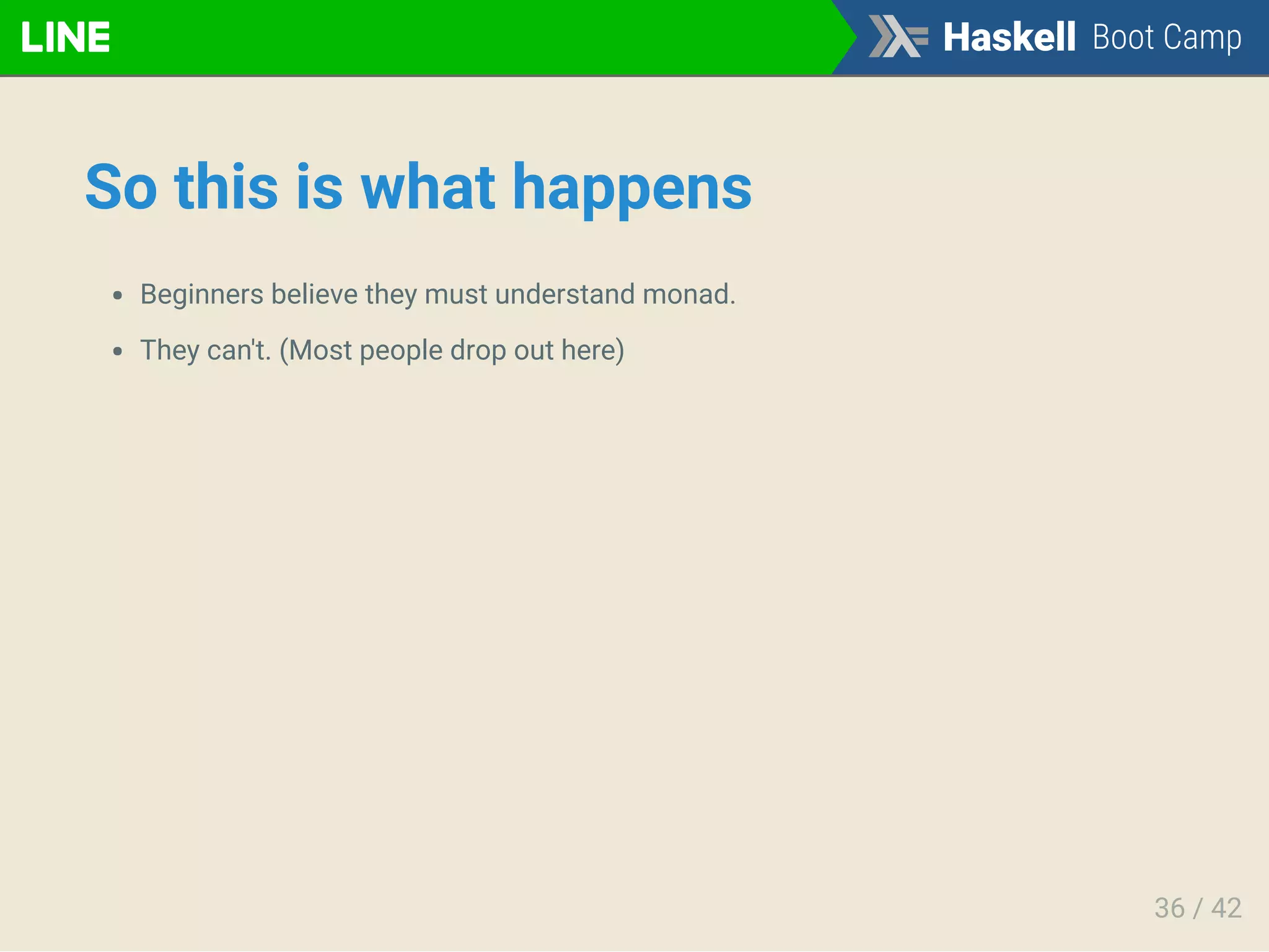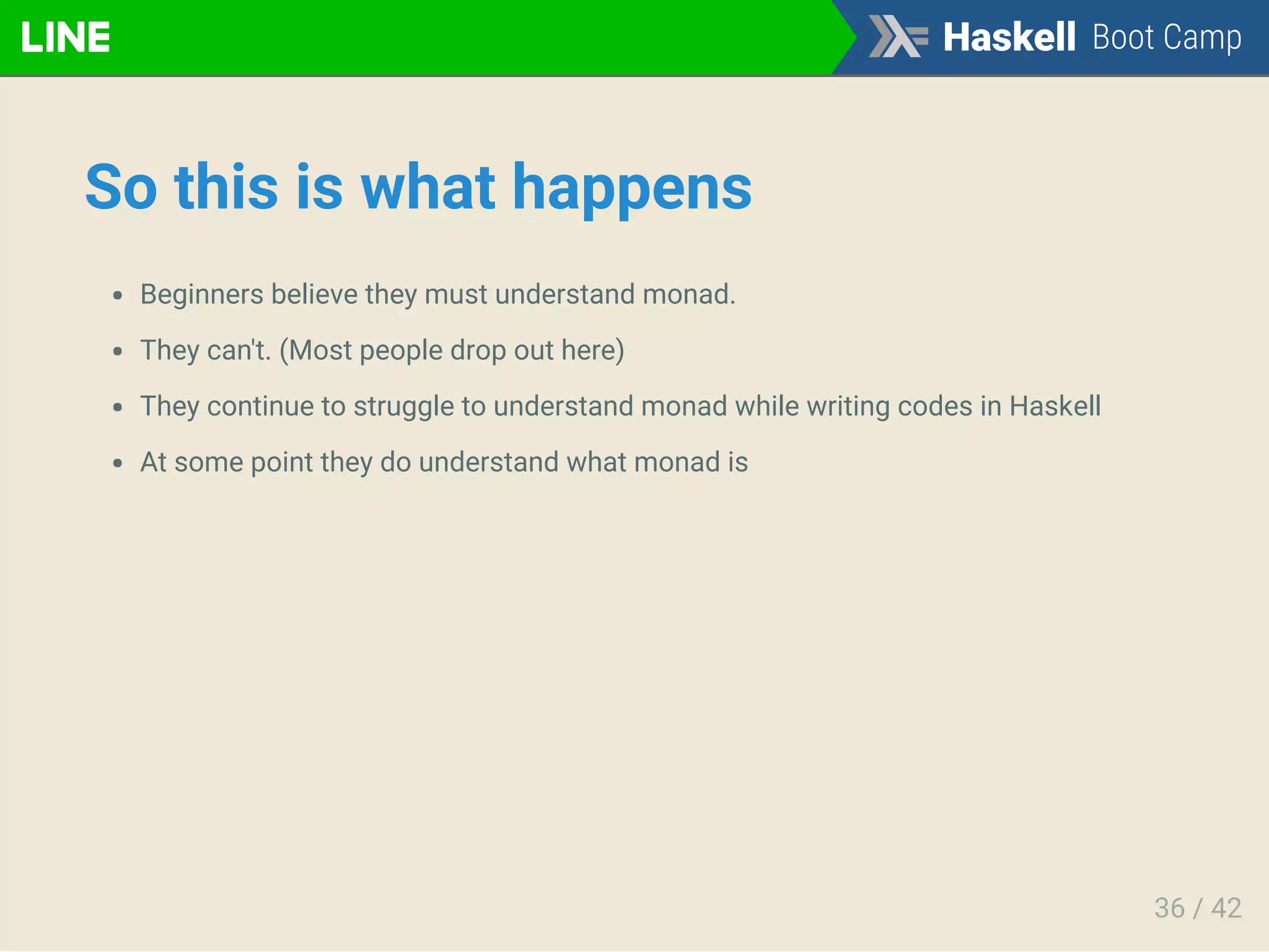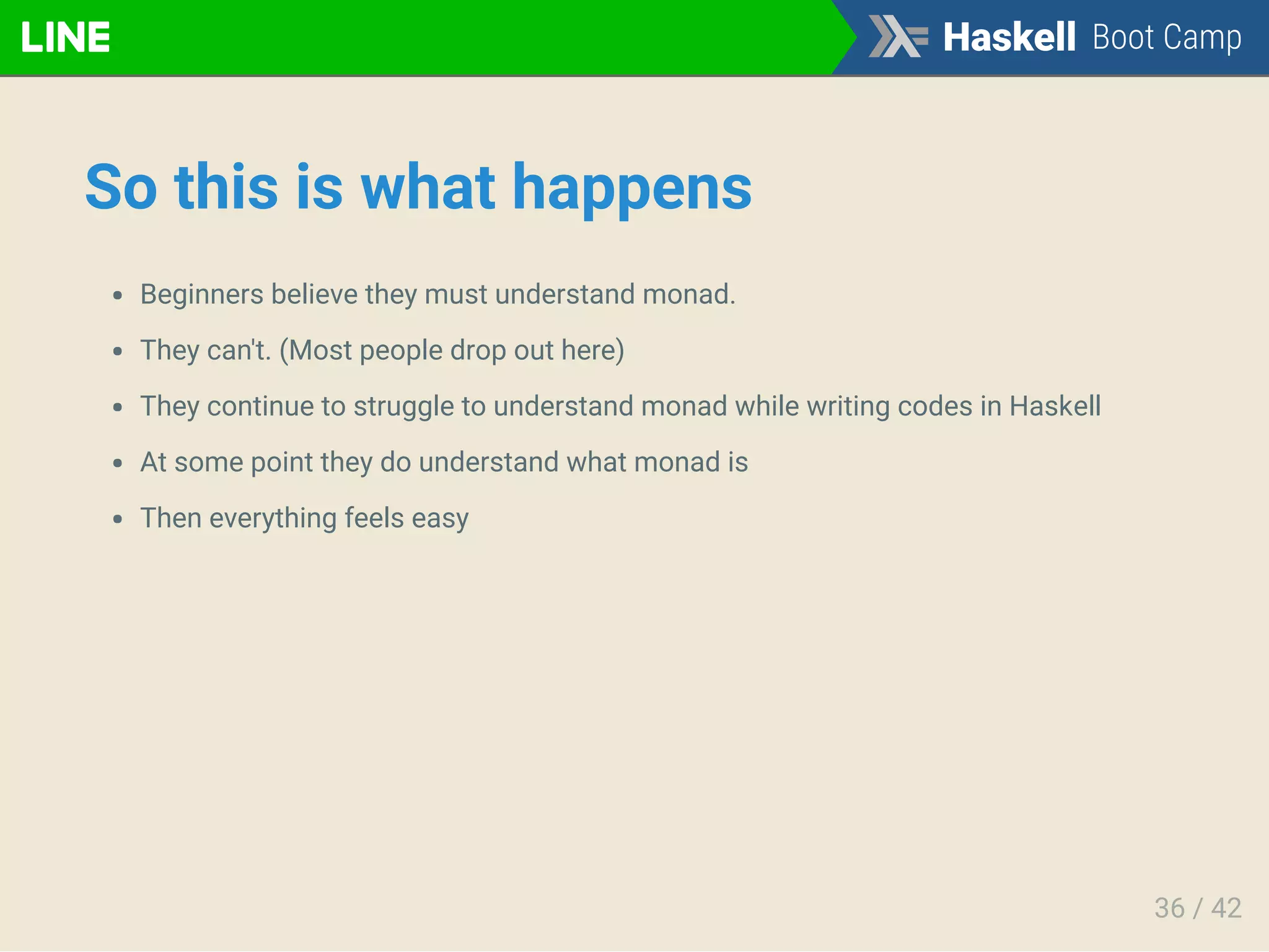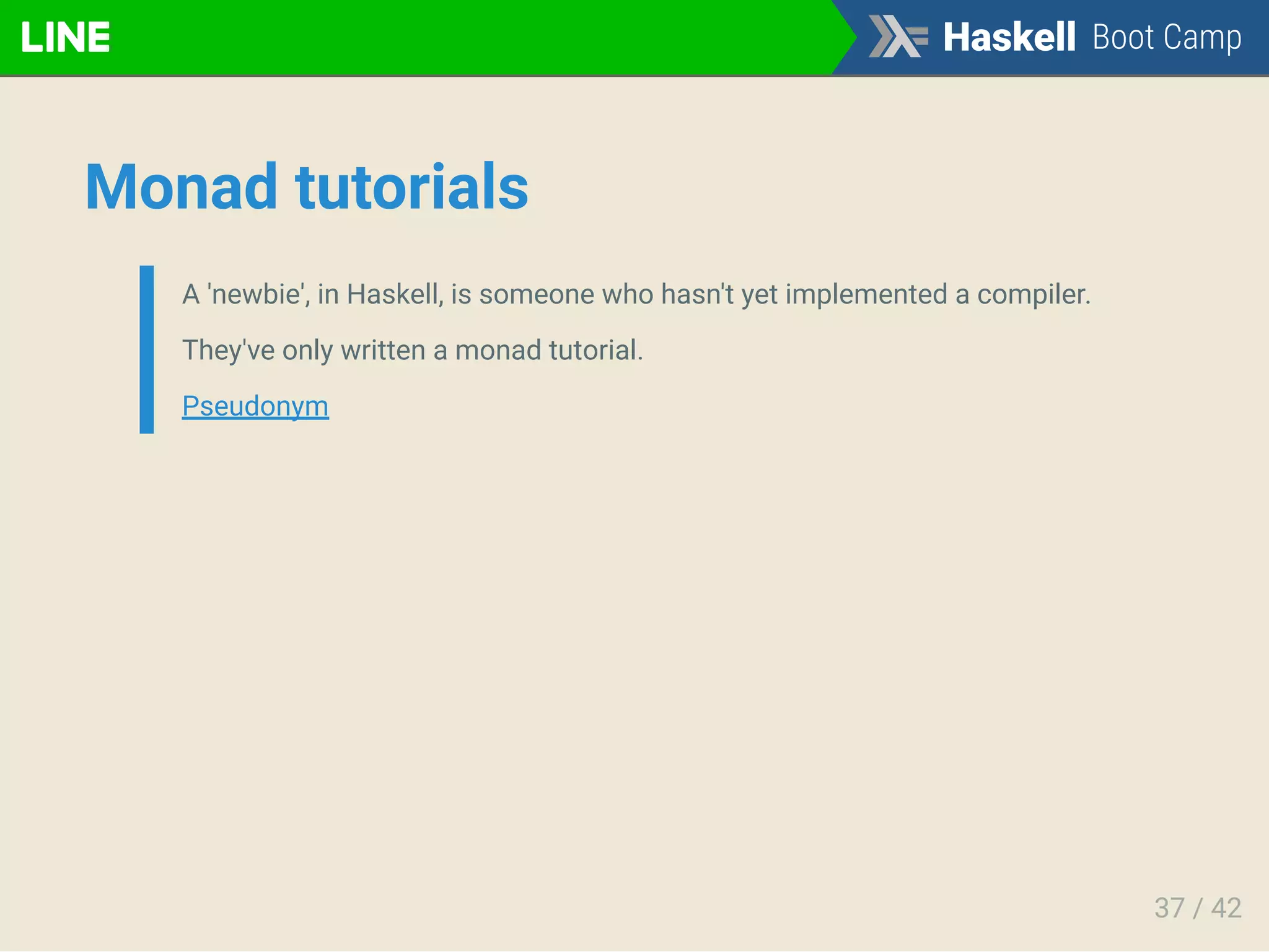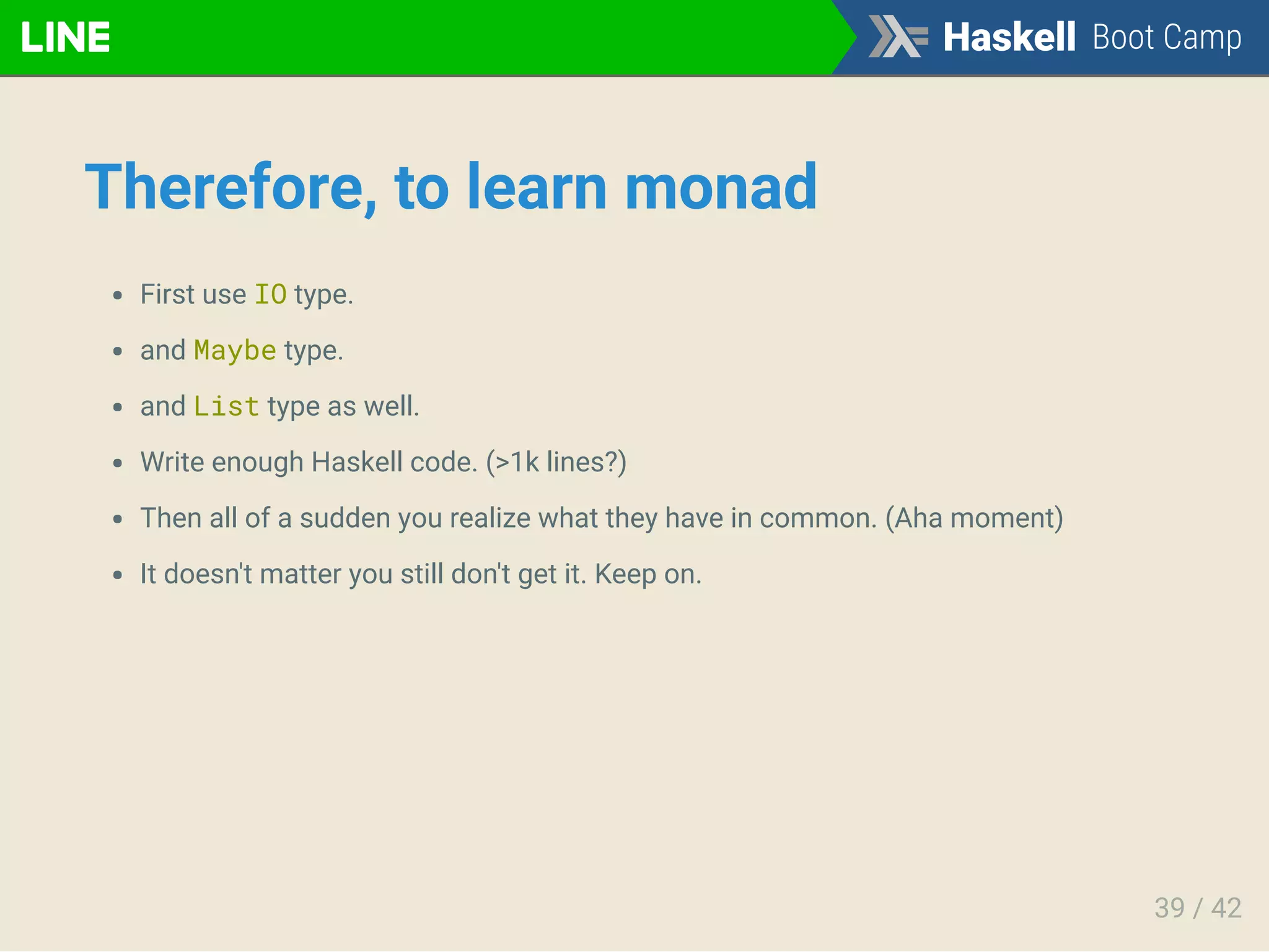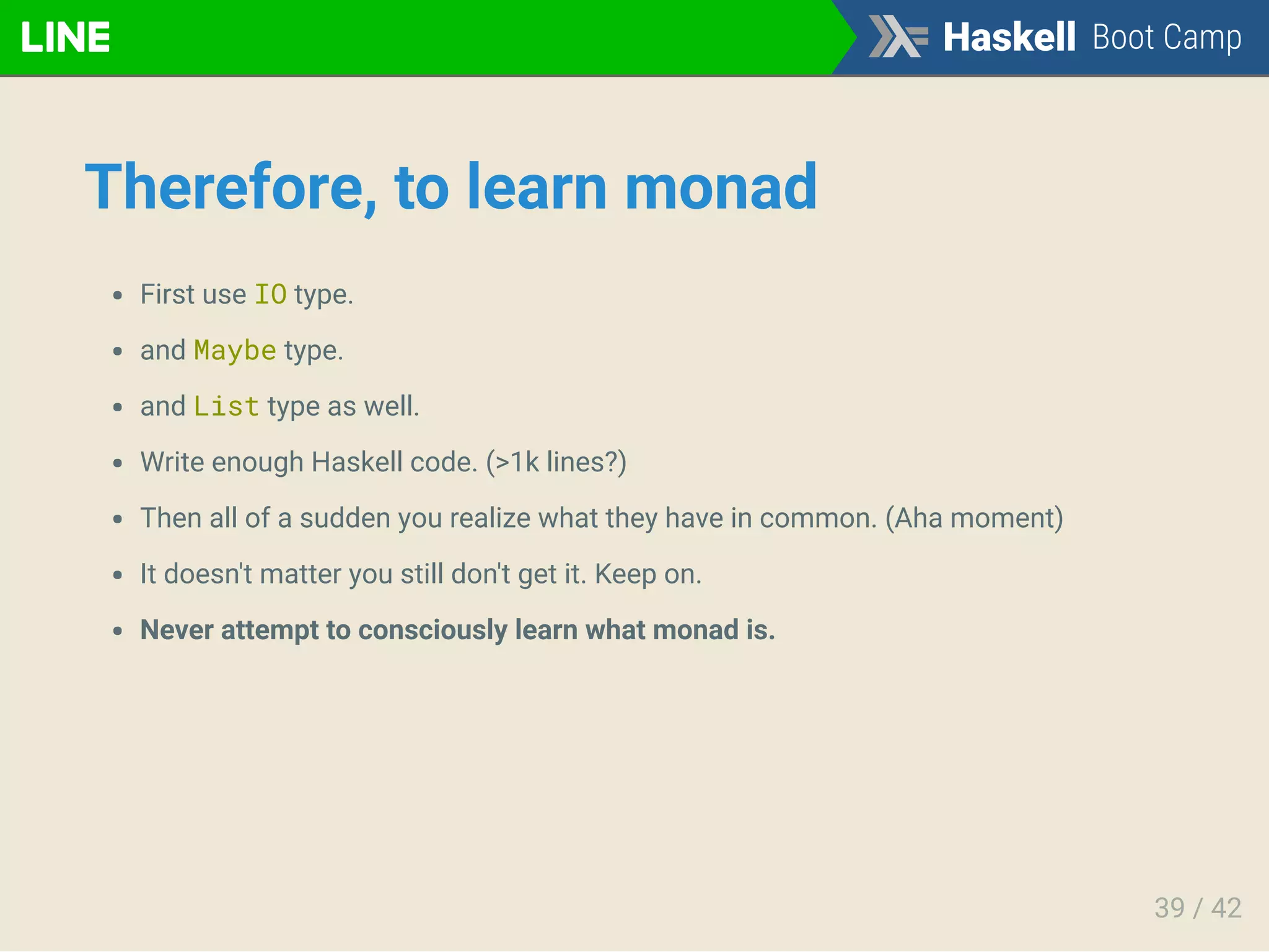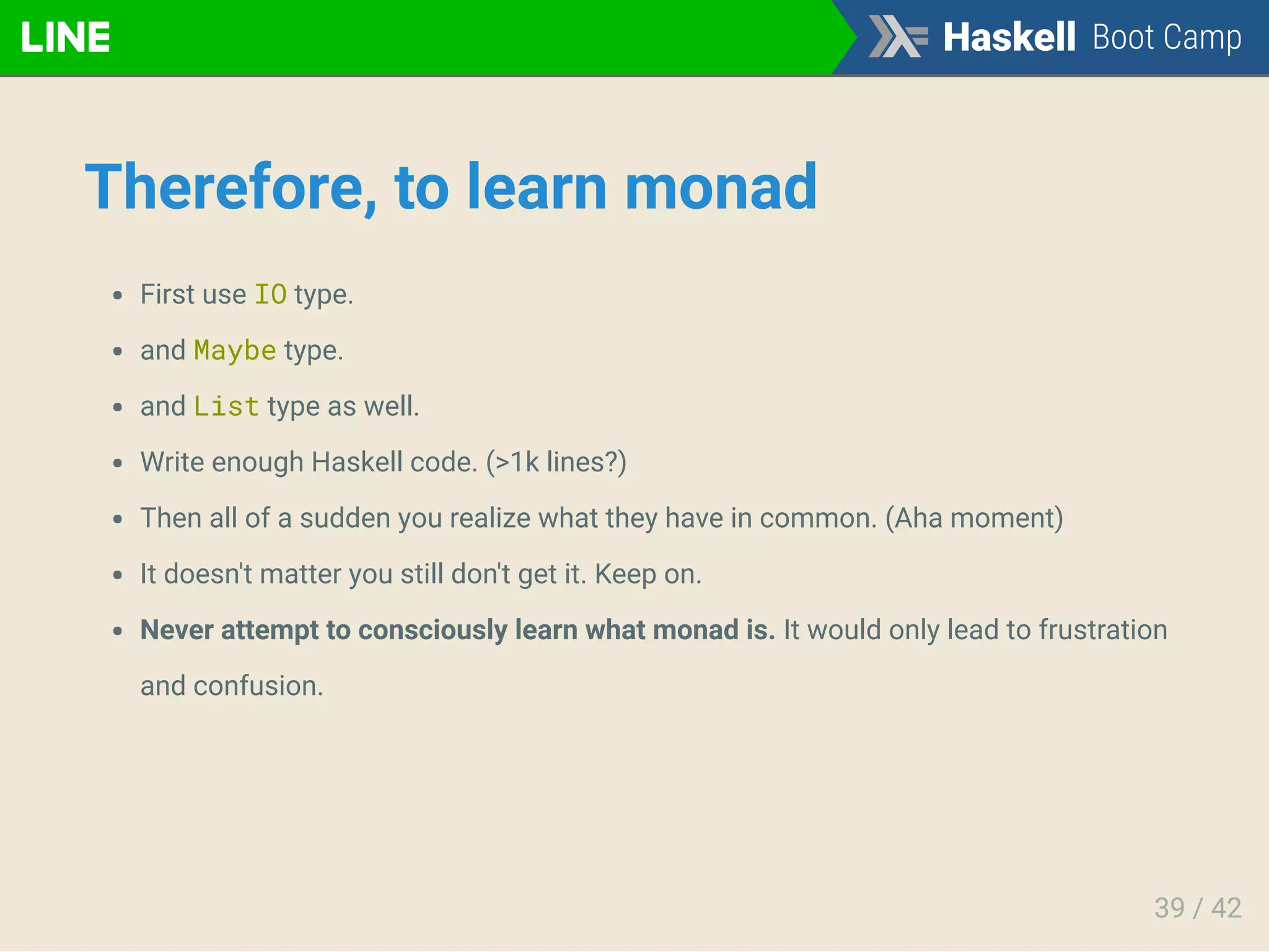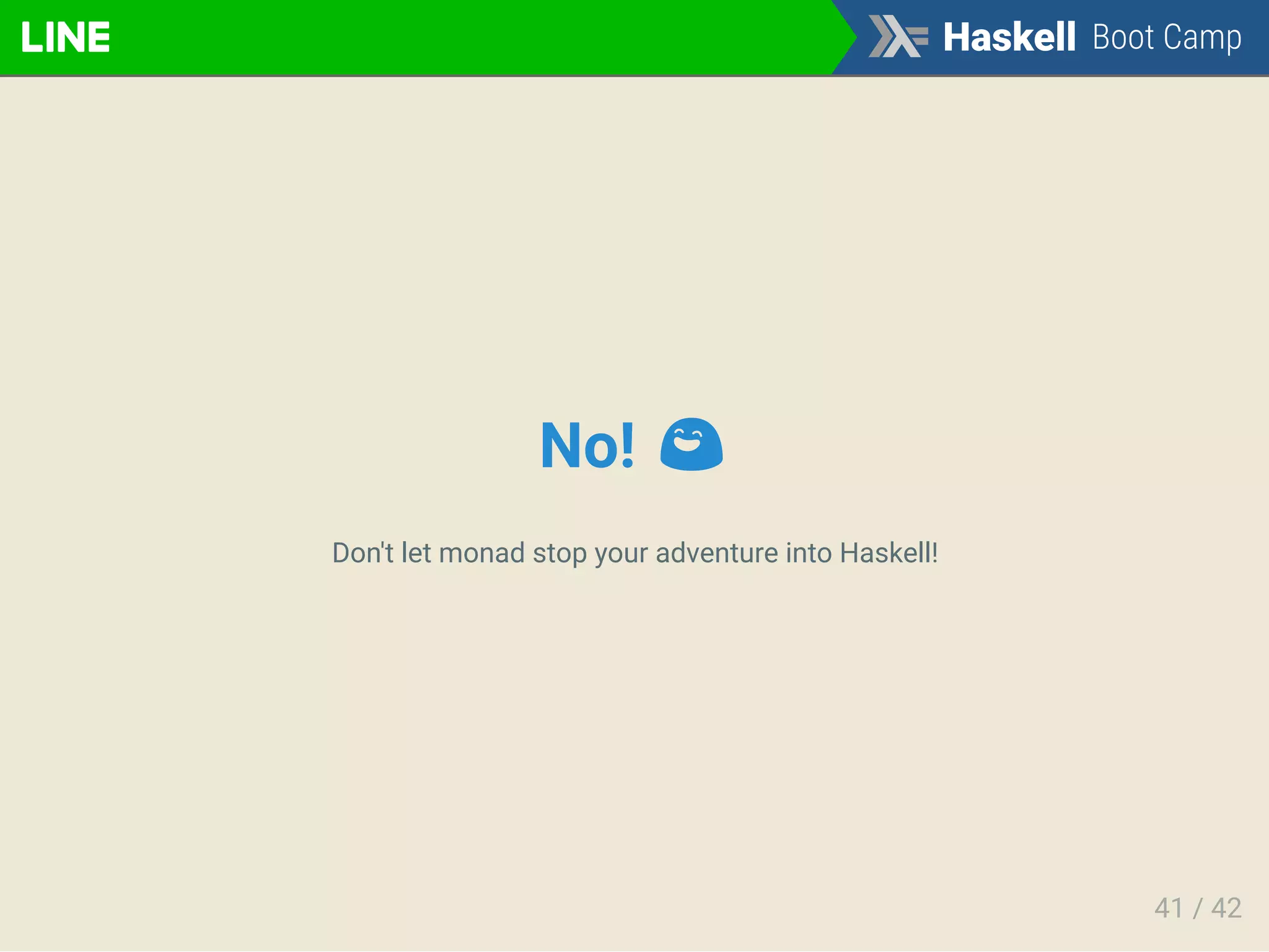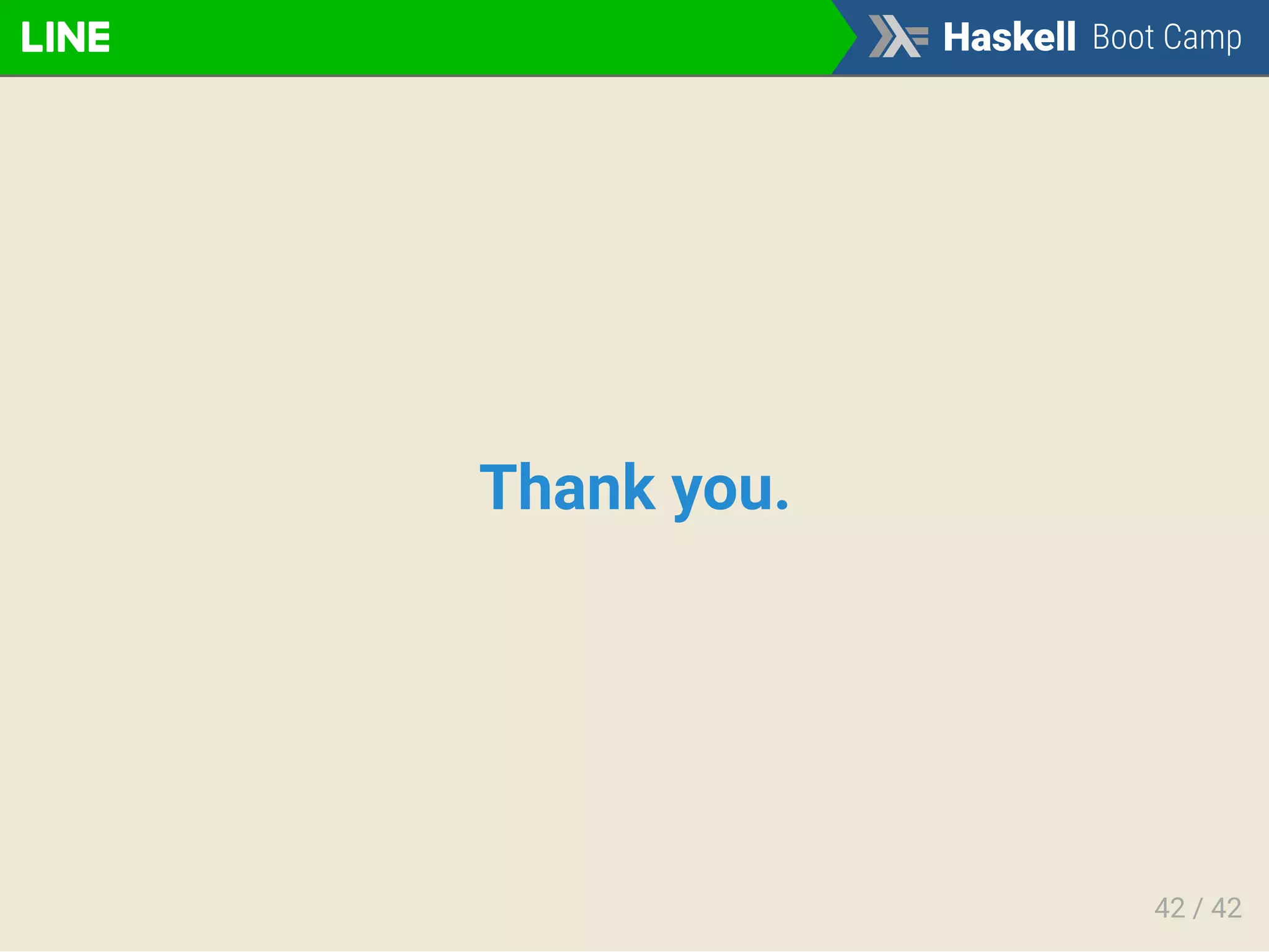This document summarizes a presentation on teaching Haskell without requiring an understanding of monads. It argues that emphasizing monads early on causes unnecessary confusion and frustration for beginners. Historically, Haskell was designed to be practical and used in applications, not just academia. However, referring to I/O as the "IO monad" has been hugely misleading and harmful to newcomers, as it leads them to obsess over understanding monads before they are ready. In reality, Haskell's I/O can be easily used without knowing anything about monads.

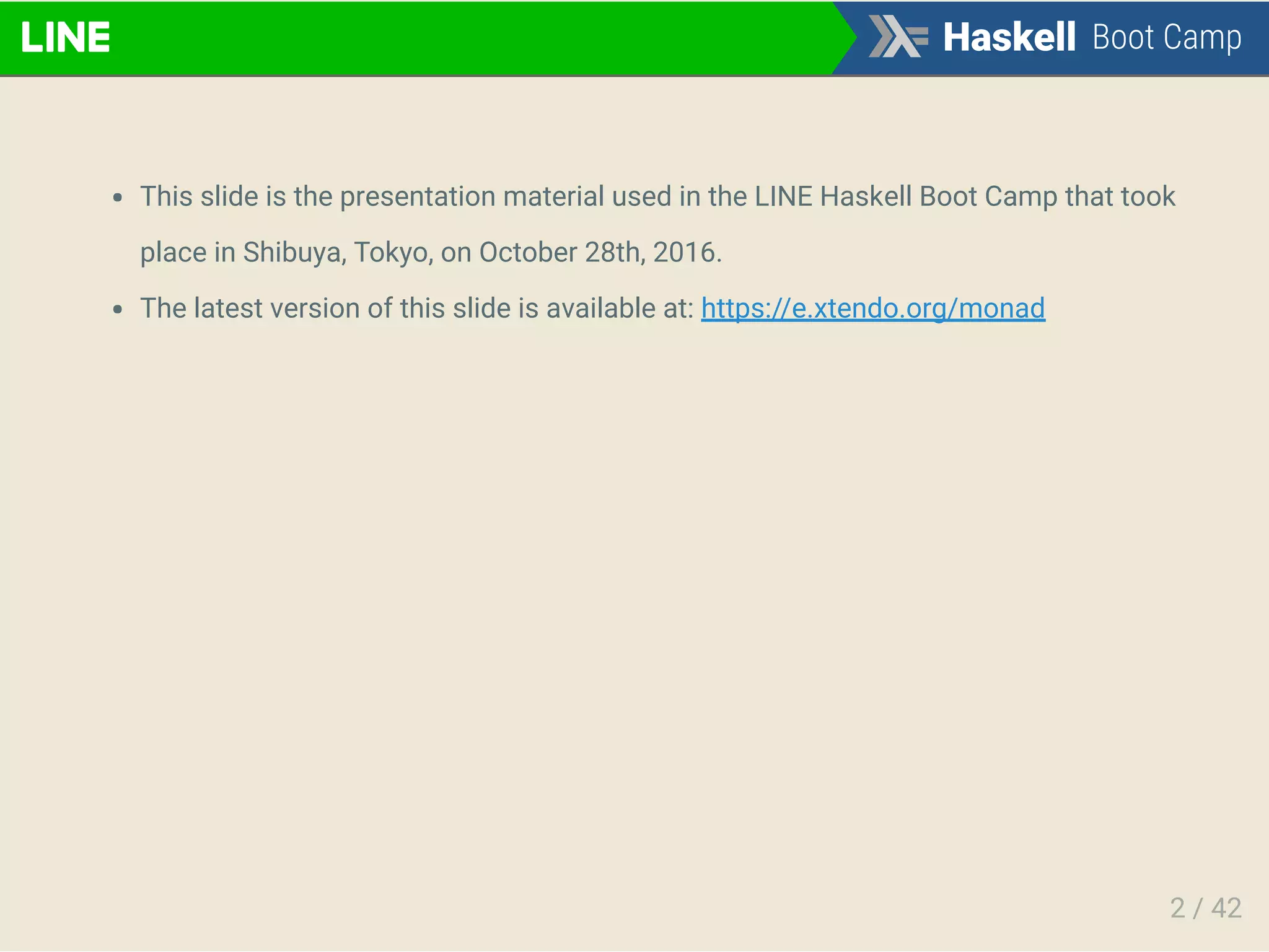
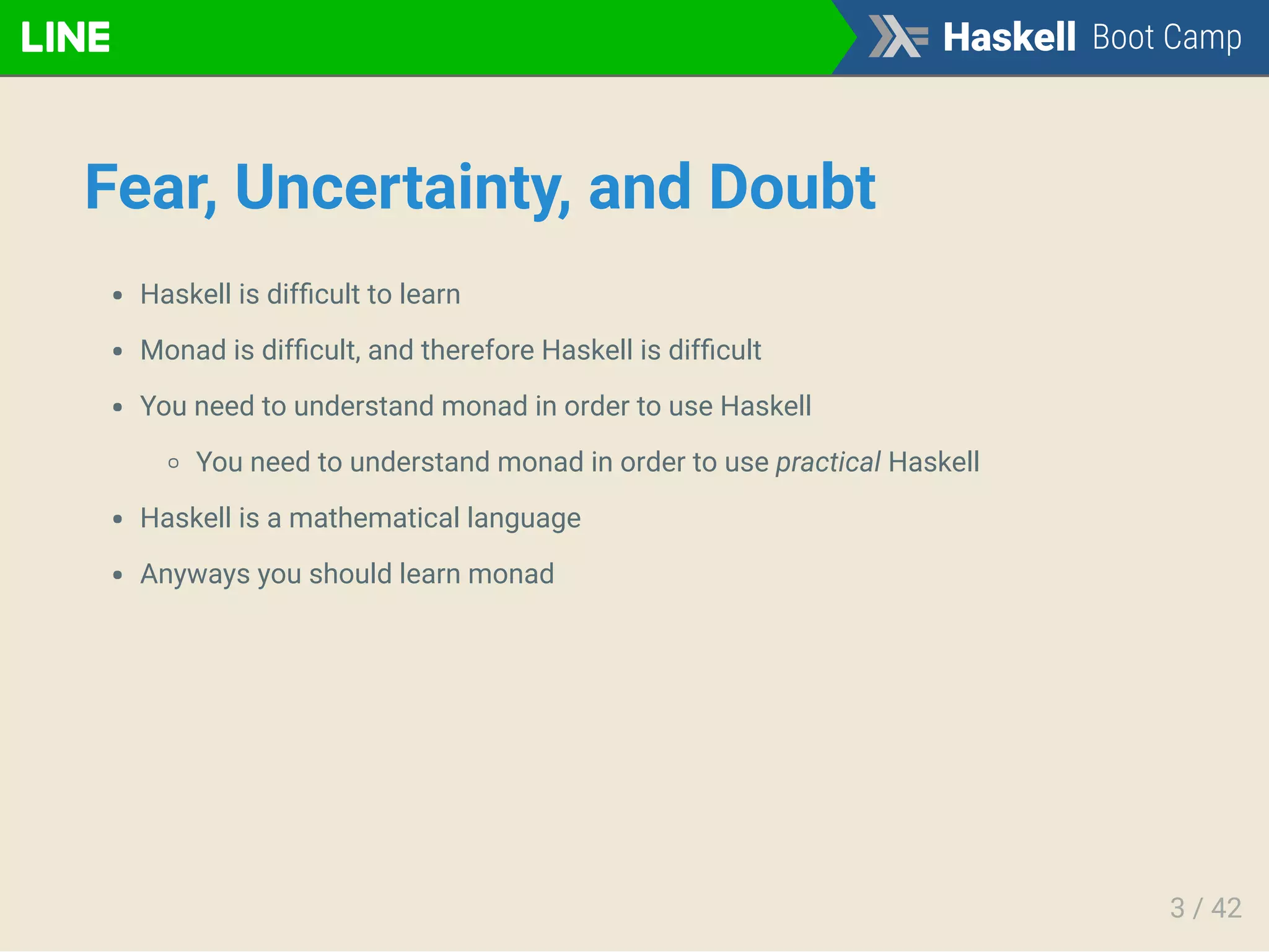




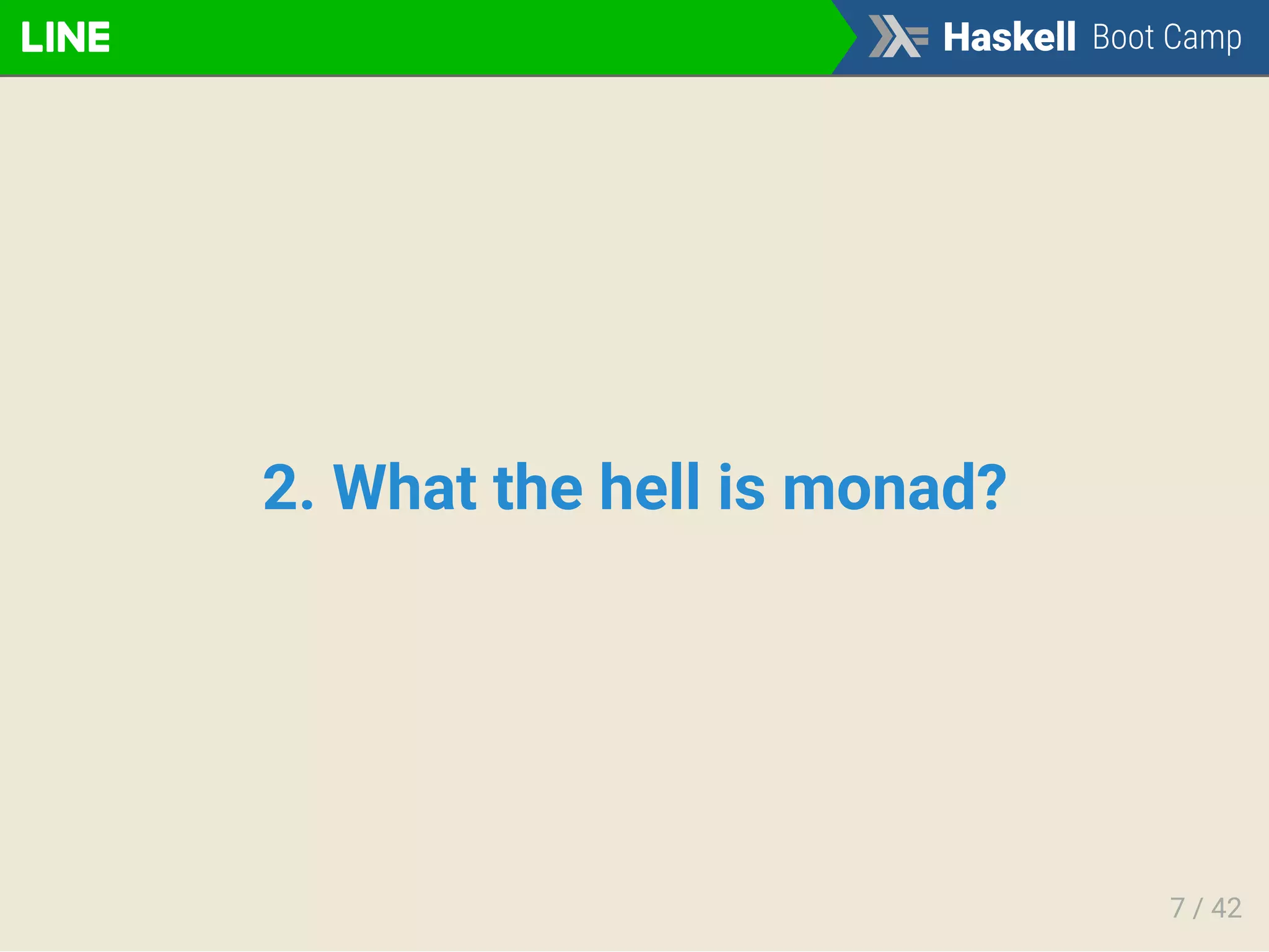

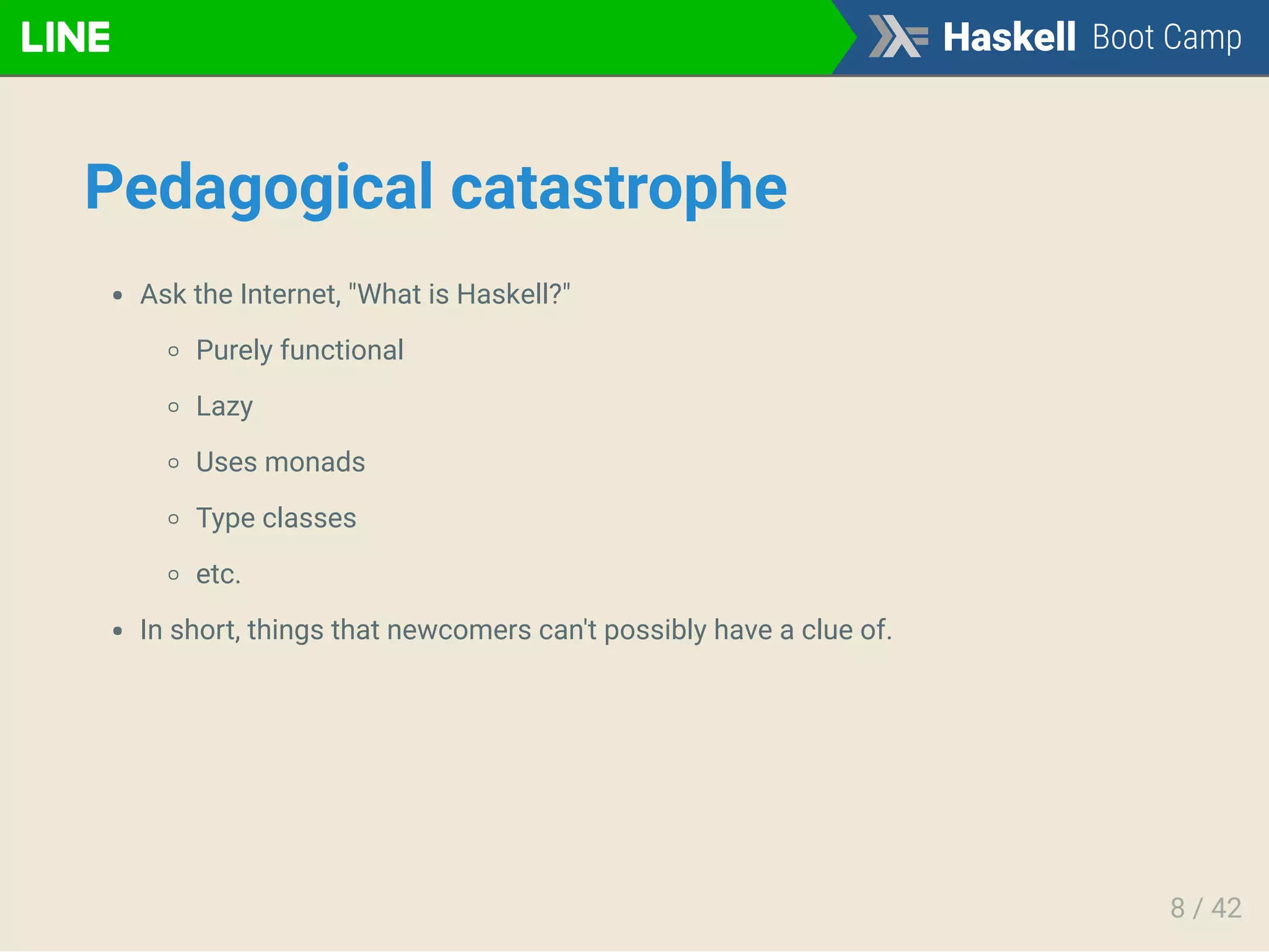

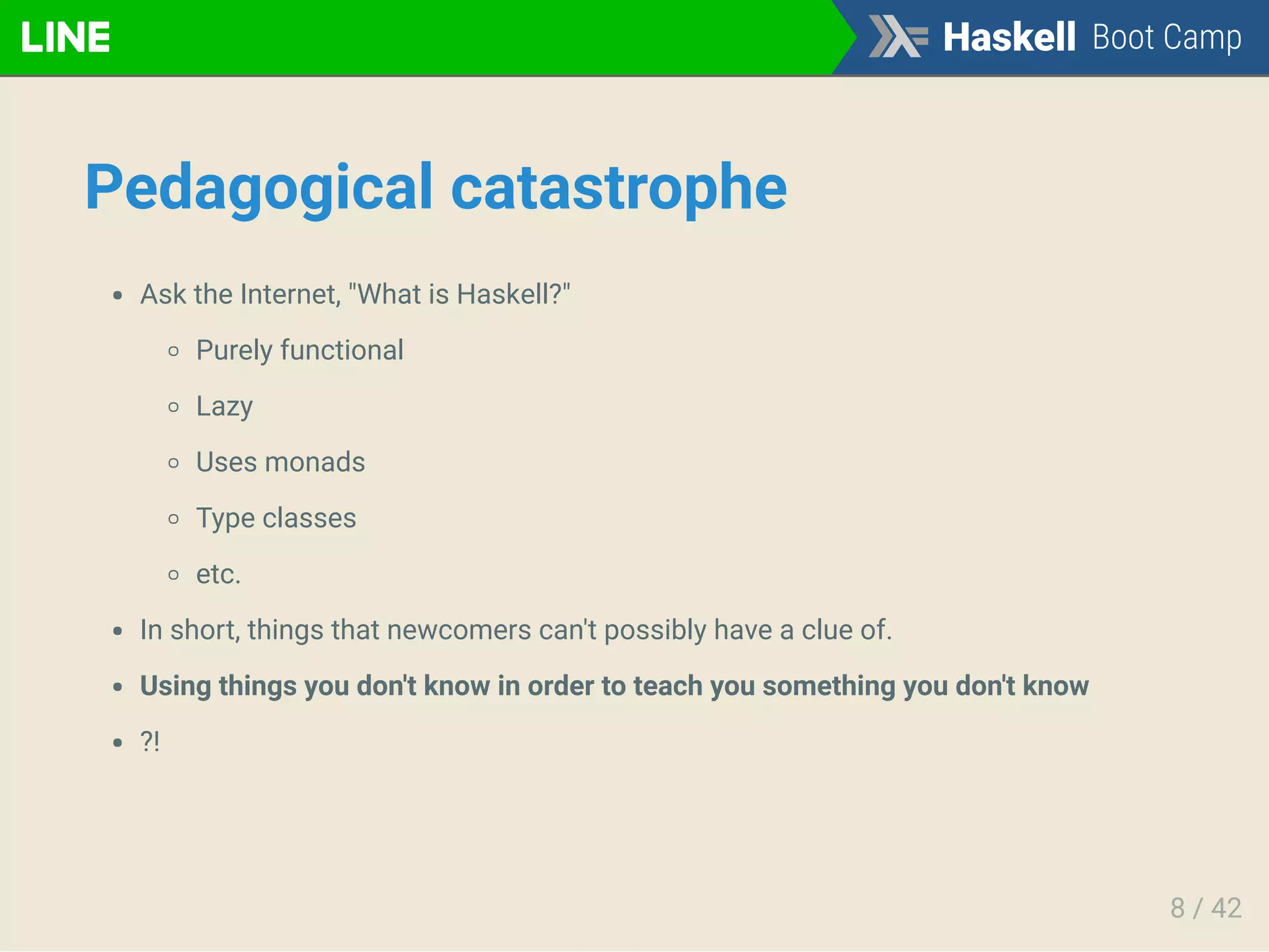


![Haskell 2010 Report
Preface
[...]
Goals
1. It should be suitable for teaching, research, and applications, including
building large systems.
10 / 42](https://image.slidesharecdn.com/themonadfear-170123061915/75/The-monad-fear-15-2048.jpg)
![Haskell 2010 Report
Preface
[...]
Goals
1. It should be suitable for teaching, research, and applications, including
building large systems.
Explicitly stated goal of usefulness in application development.
10 / 42](https://image.slidesharecdn.com/themonadfear-170123061915/75/The-monad-fear-16-2048.jpg)


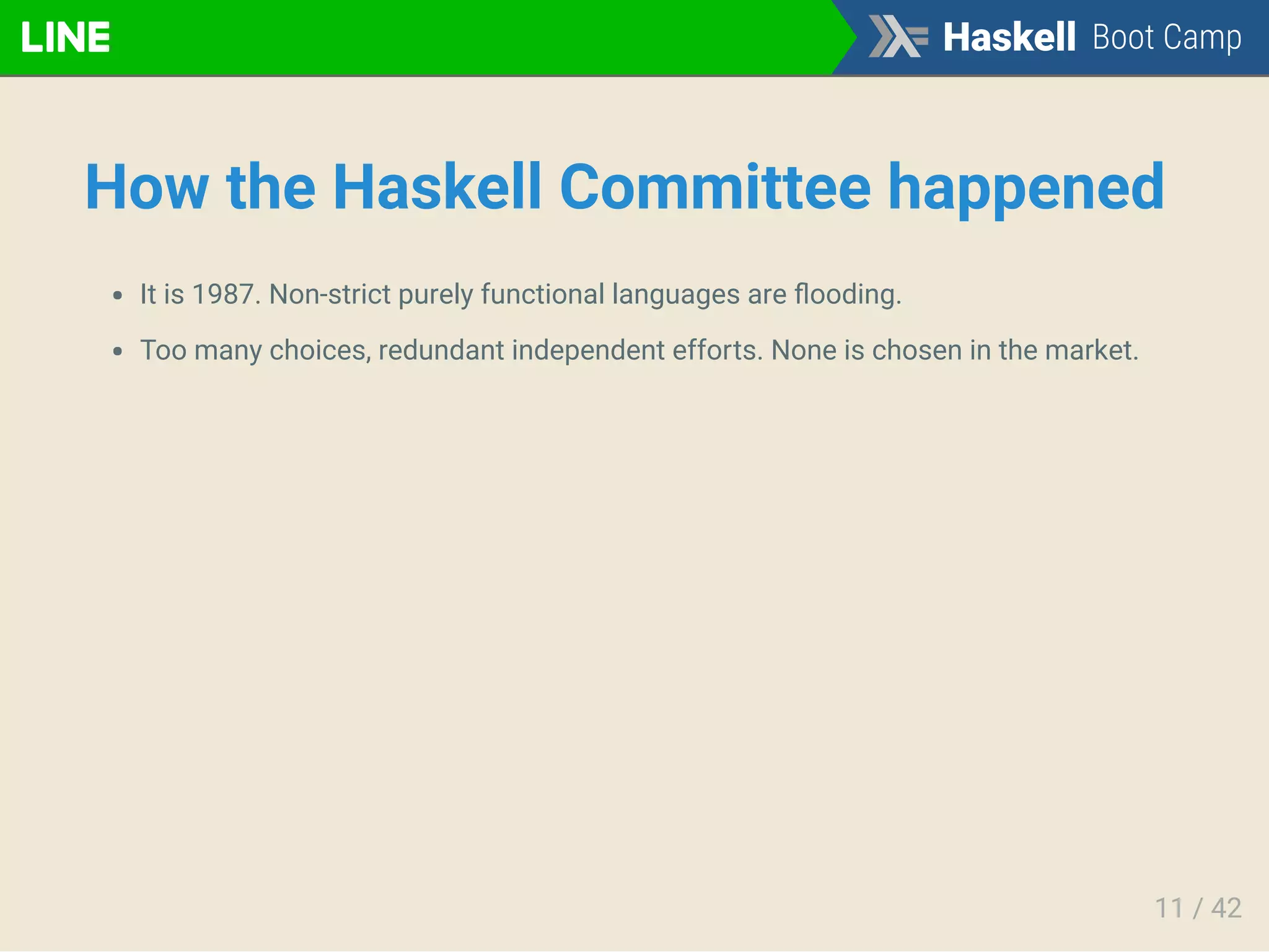
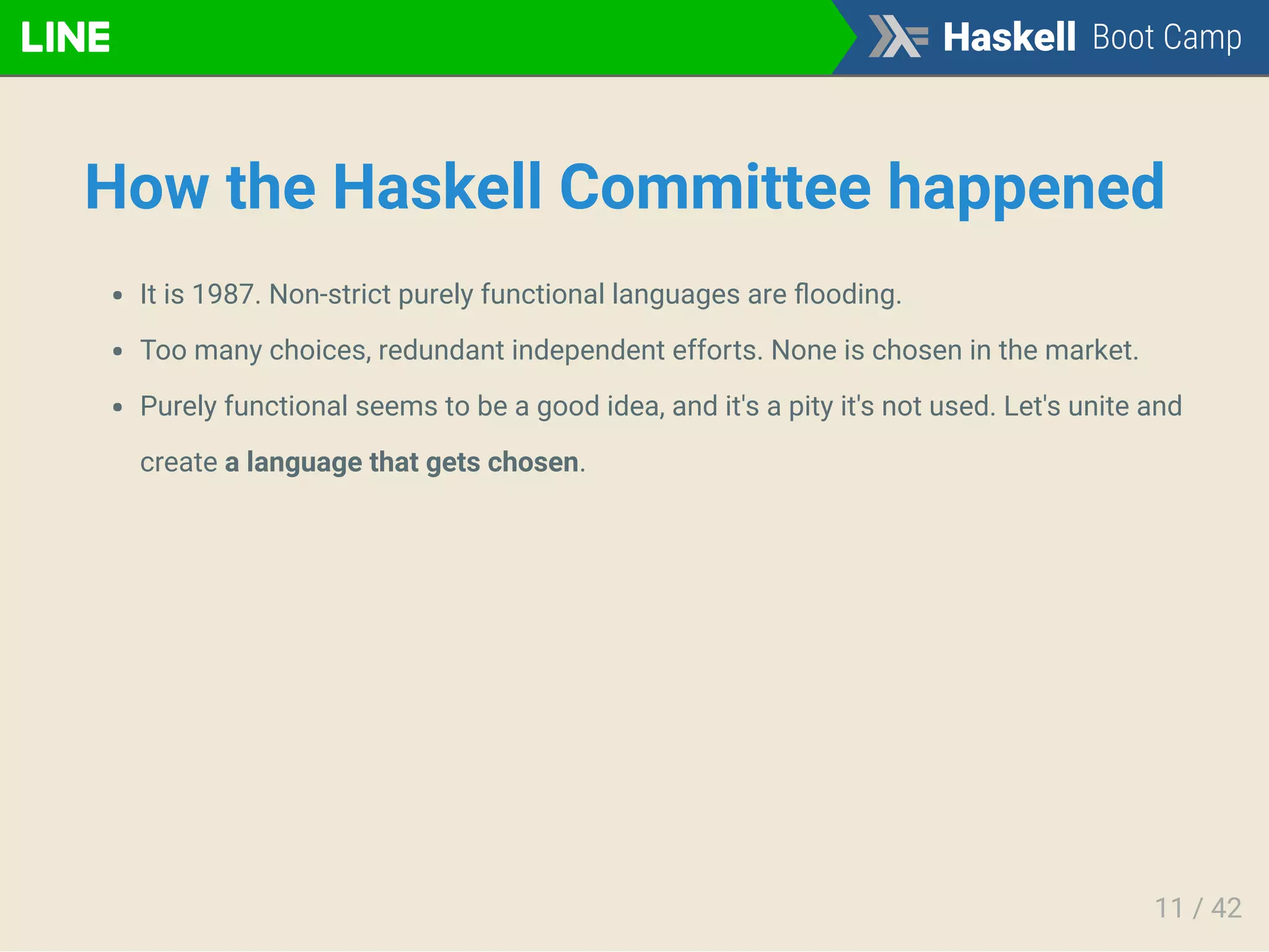



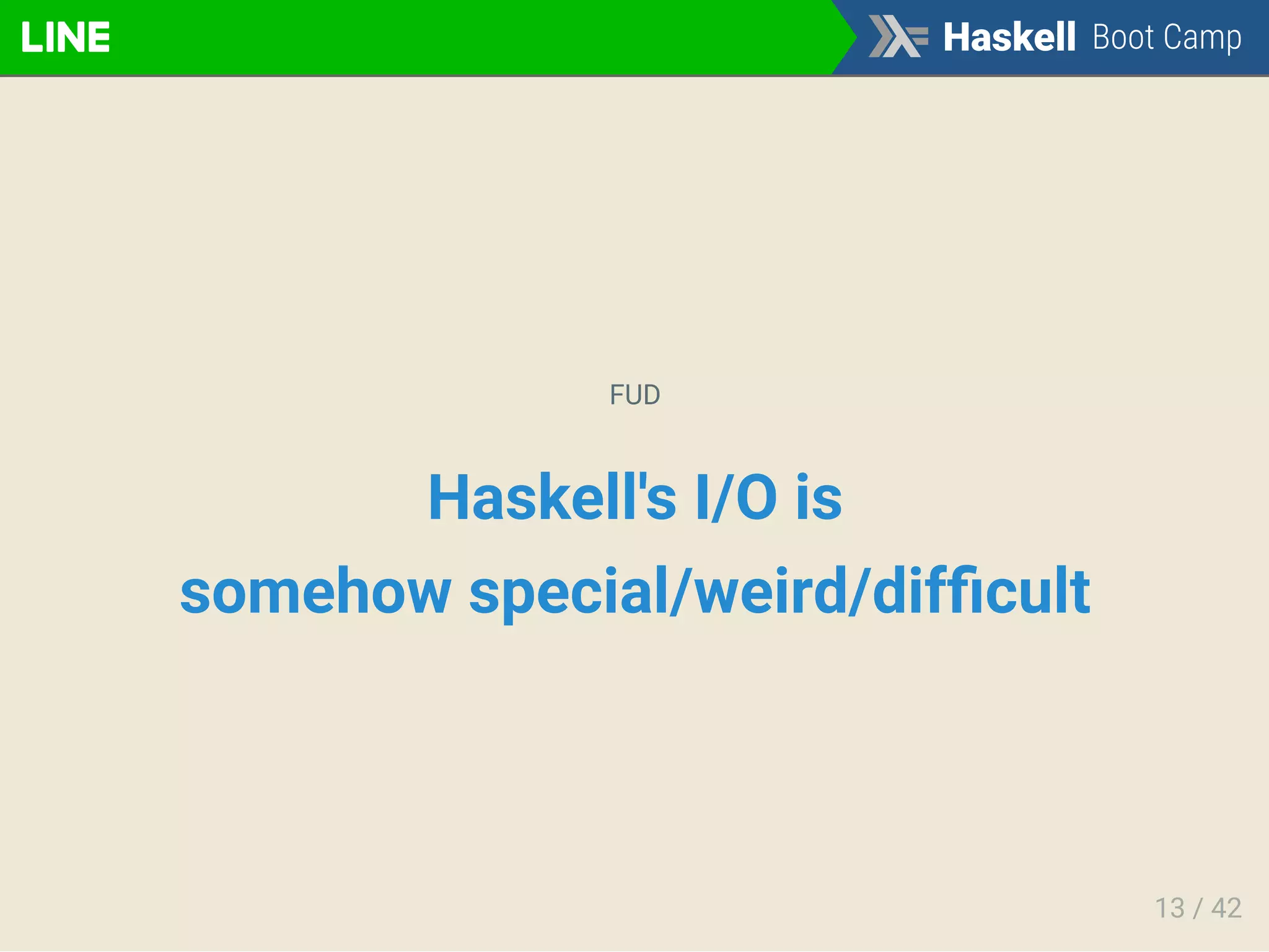
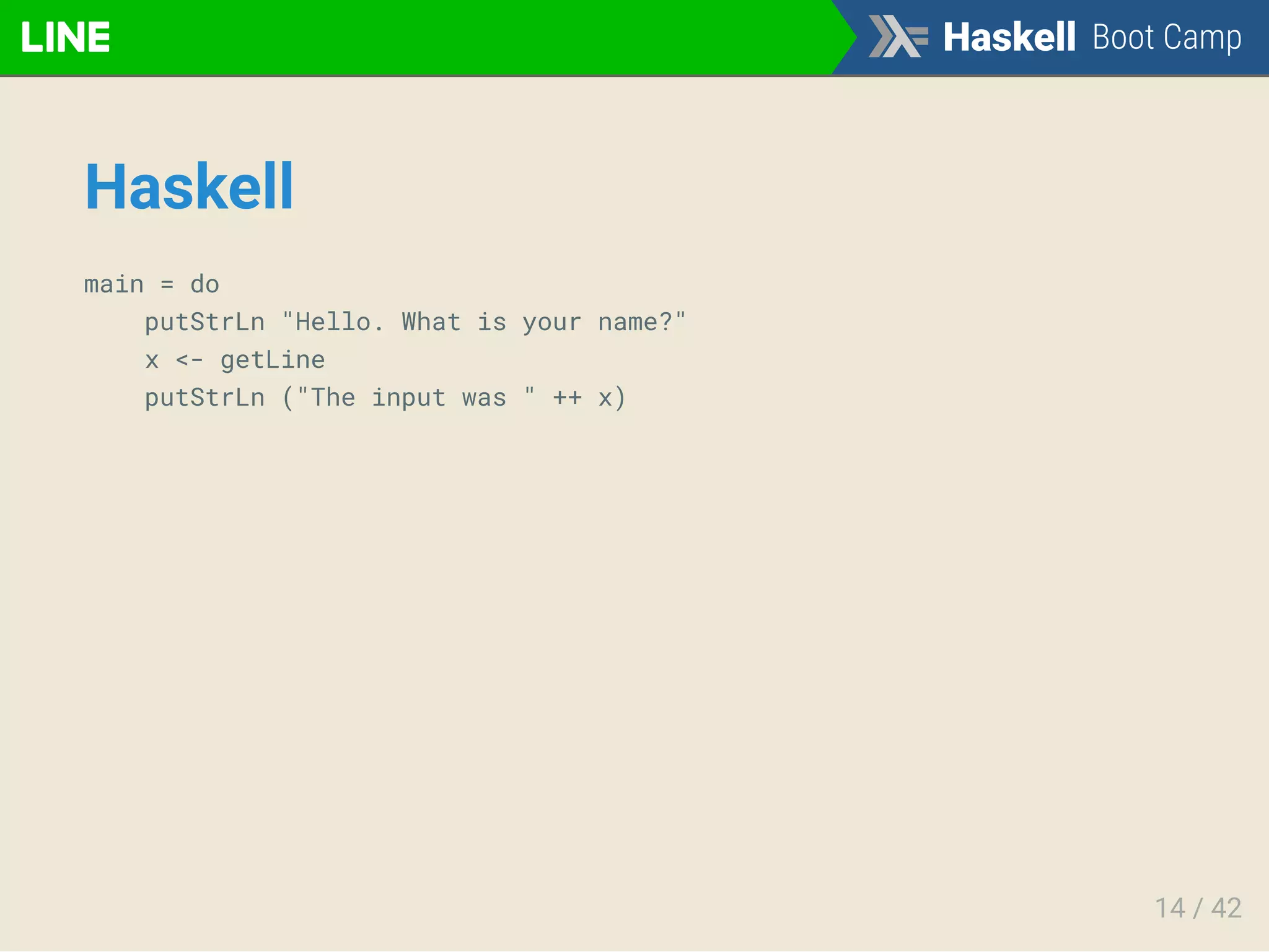


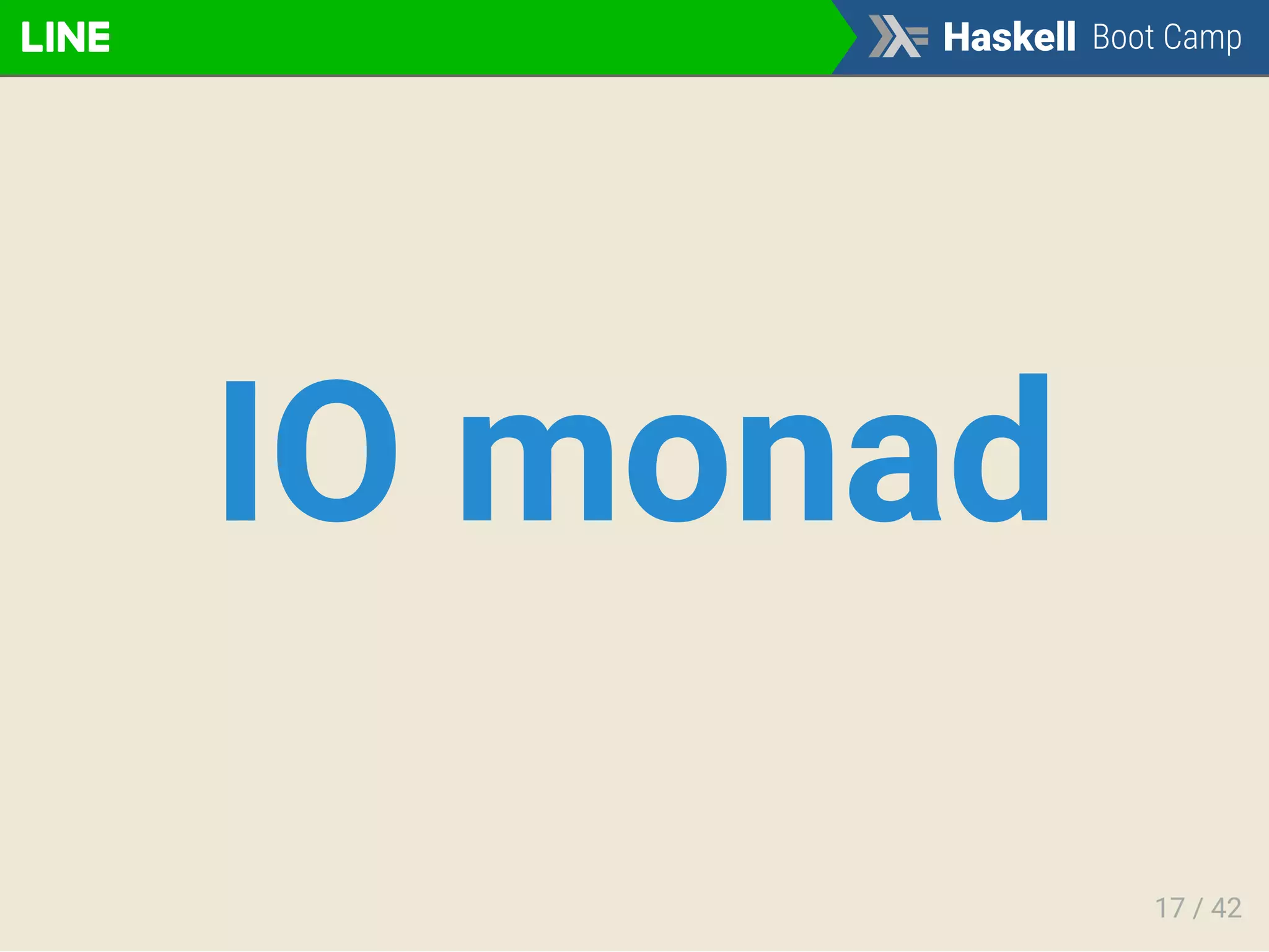
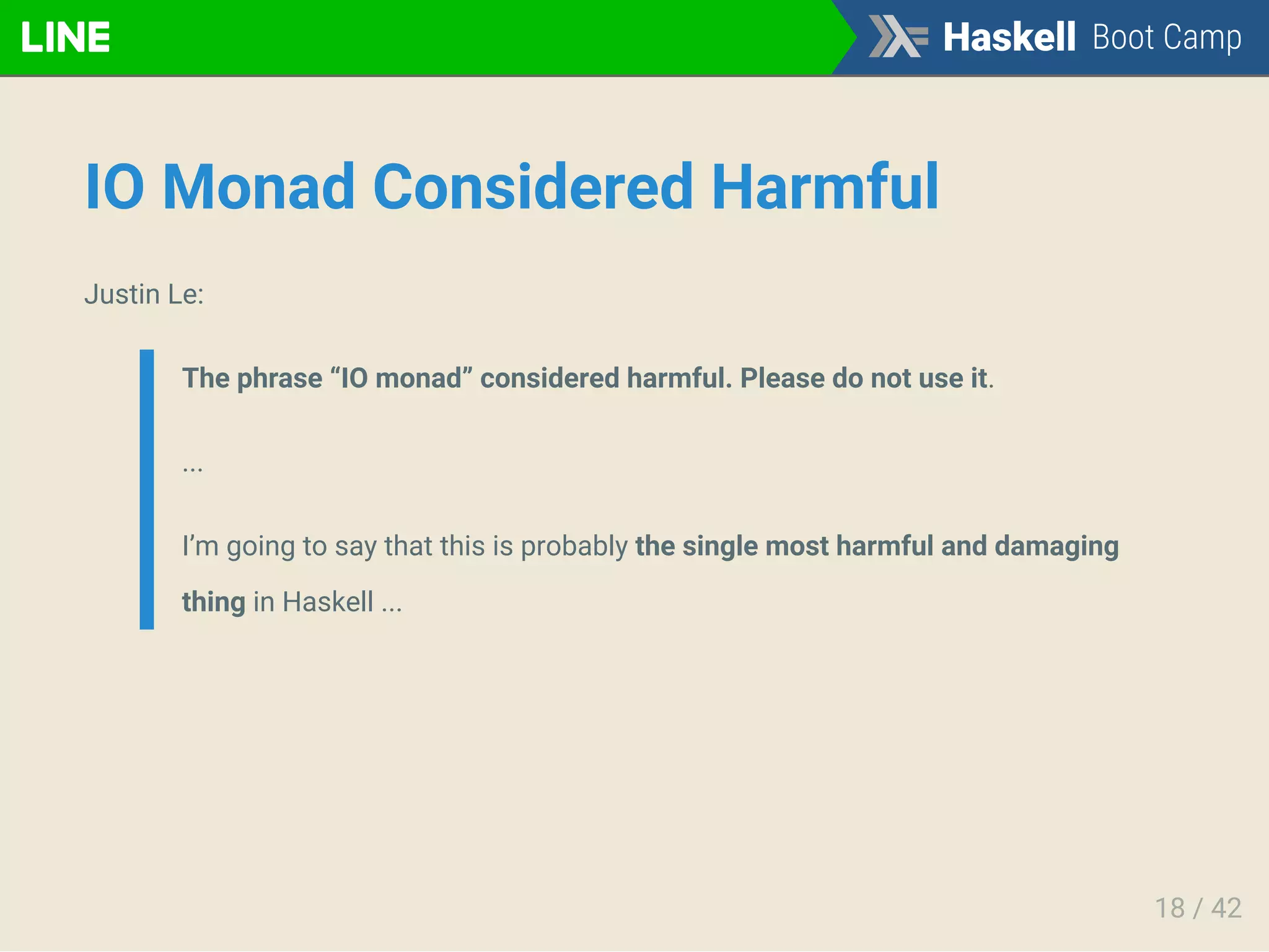
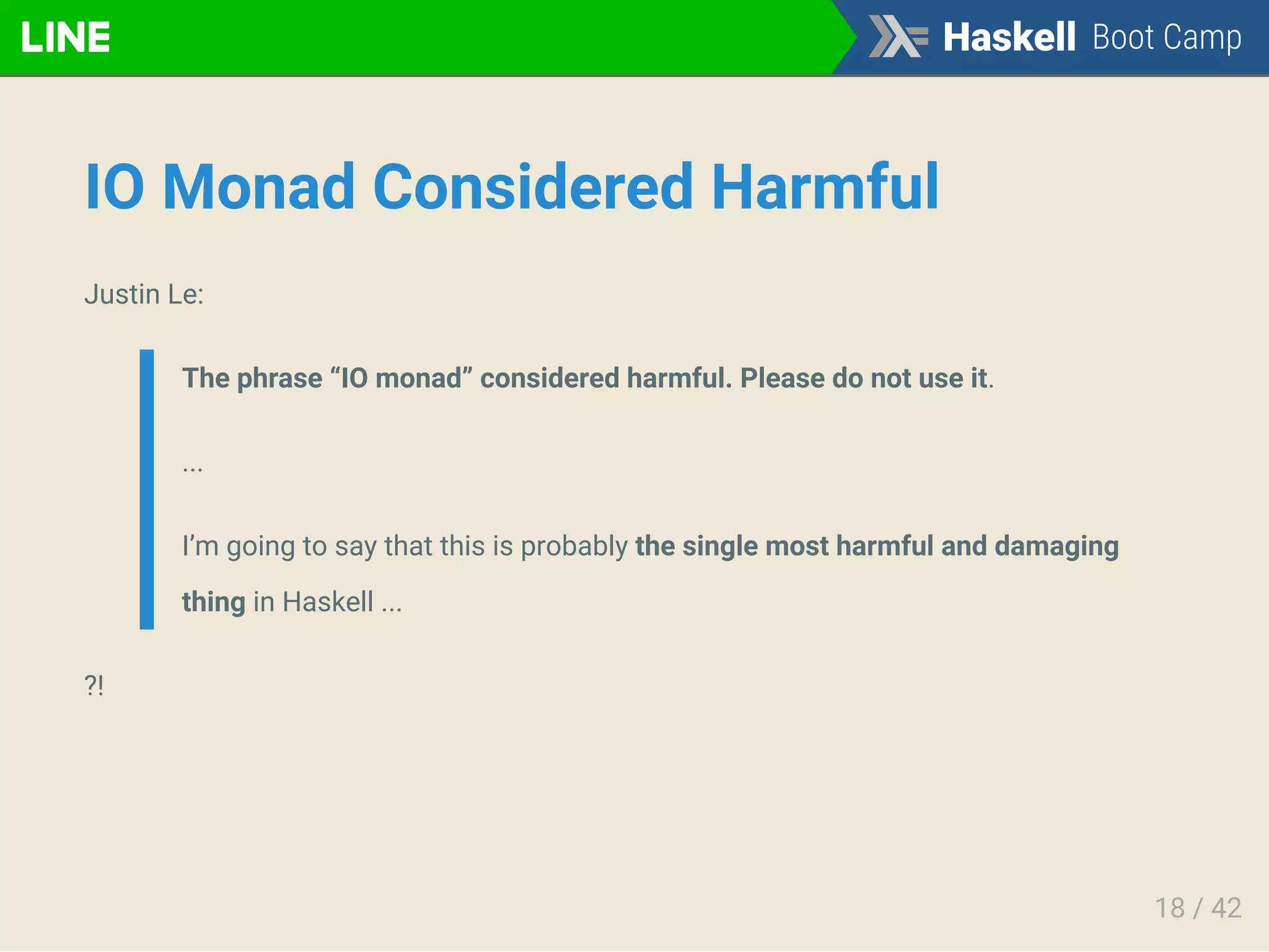




![Haskell distinguishes pure functions
and actions by their types
-- pure function
not :: Bool -> Bool
(++) :: [a] -> [a] -> [a]
-- IO action
getLine :: IO String
putStrLn :: String -> IO ()
readFile :: FilePath -> IO String
23 / 42](https://image.slidesharecdn.com/themonadfear-170123061915/75/The-monad-fear-35-2048.jpg)

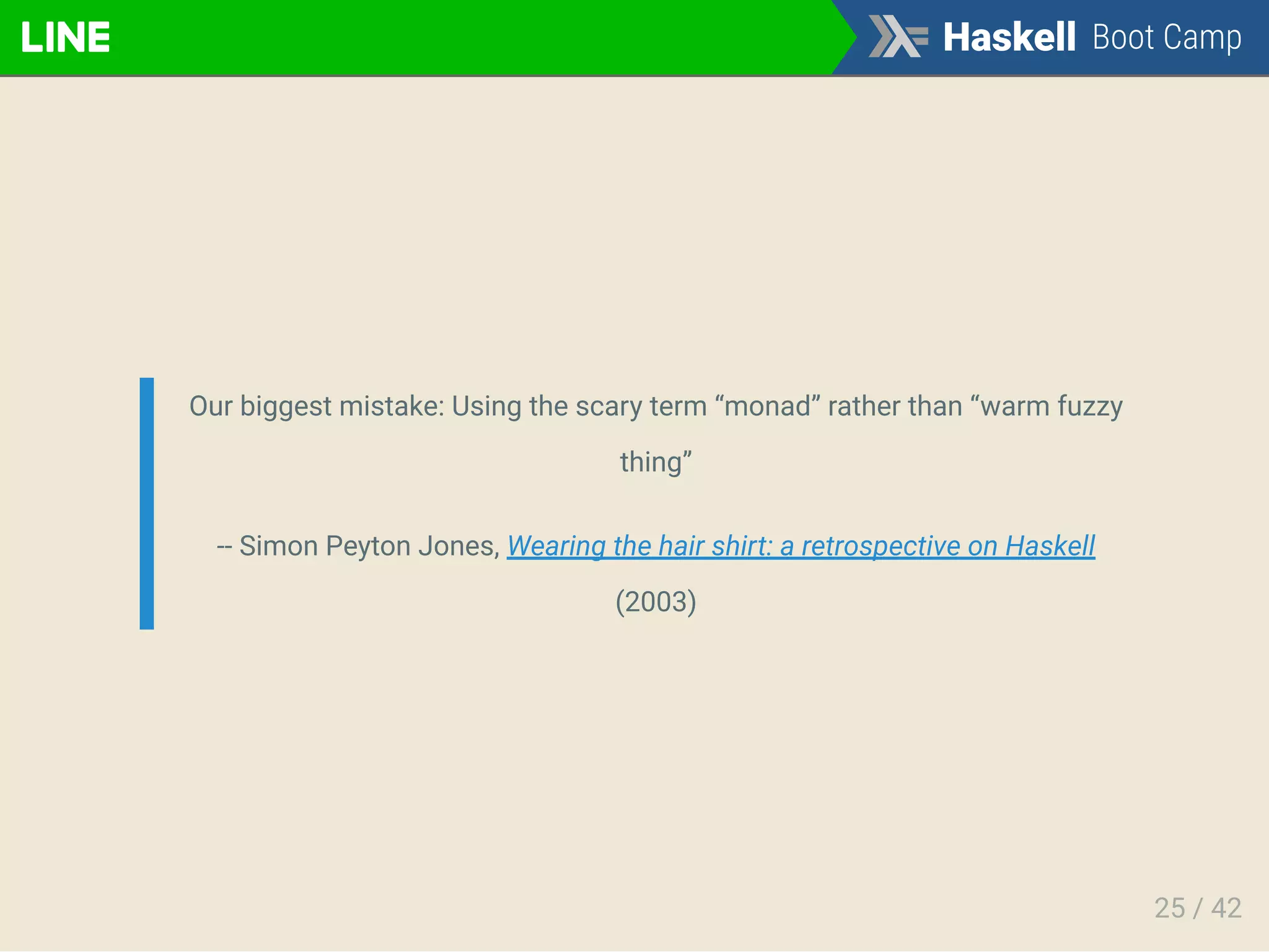

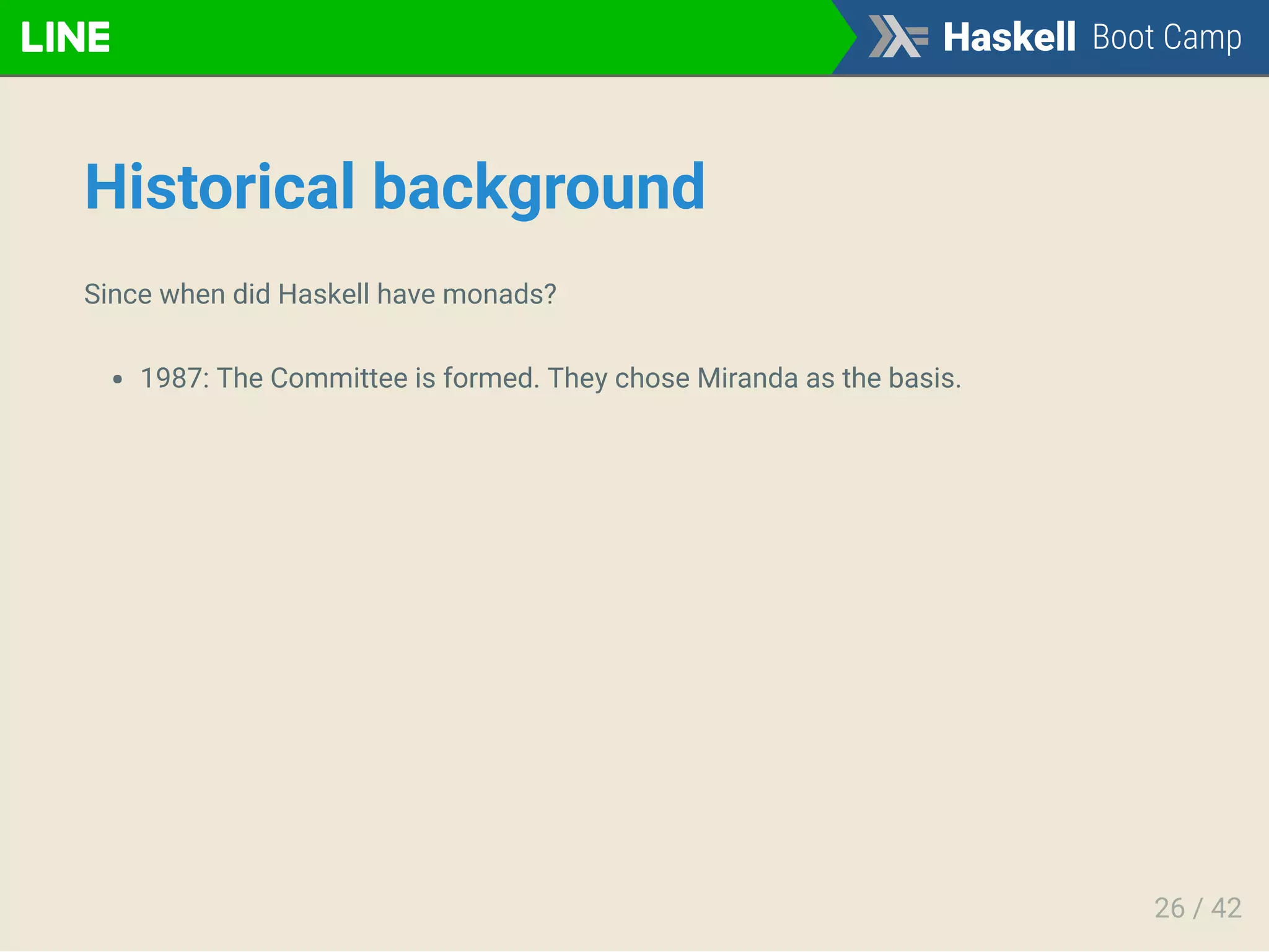


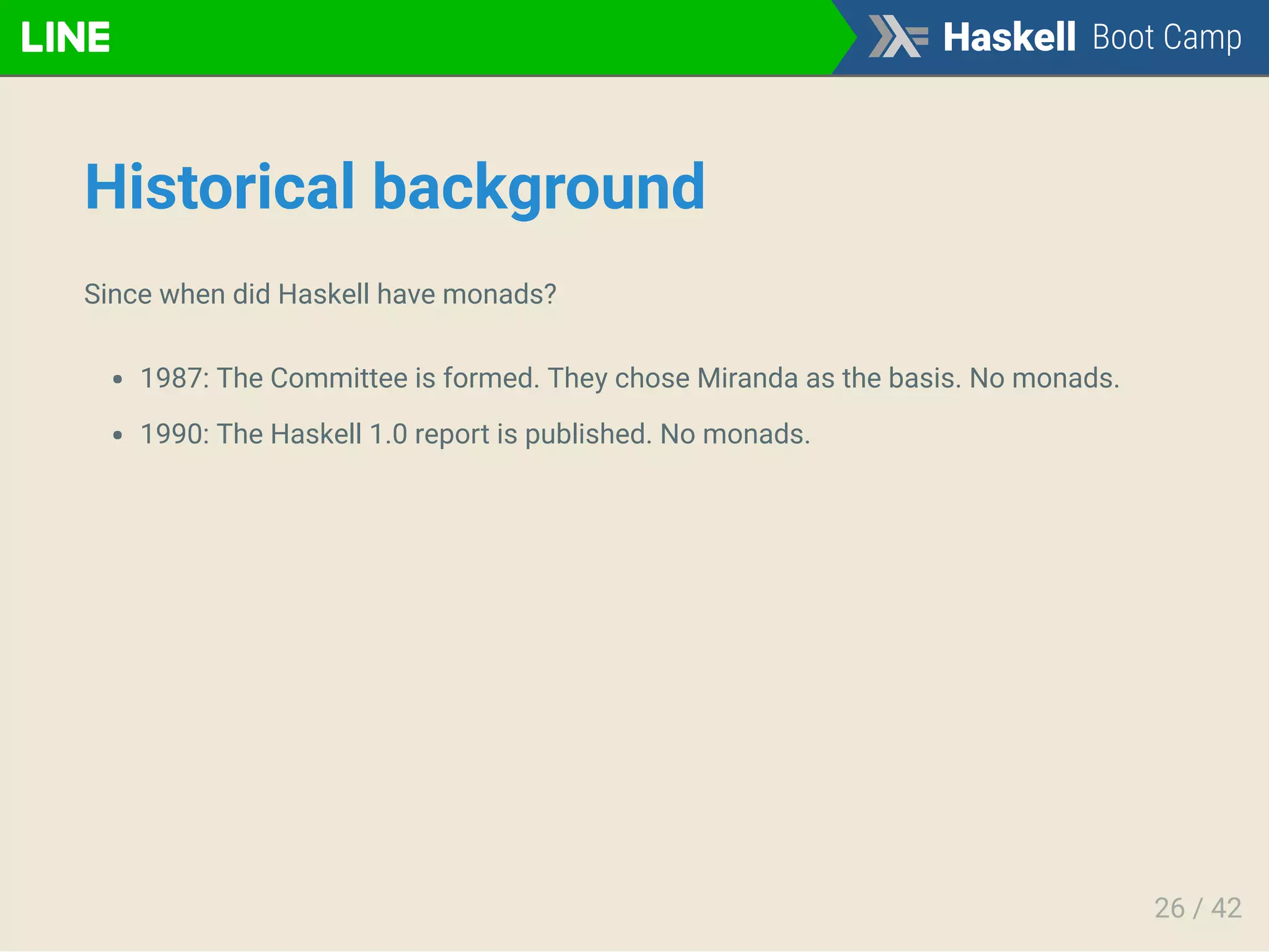

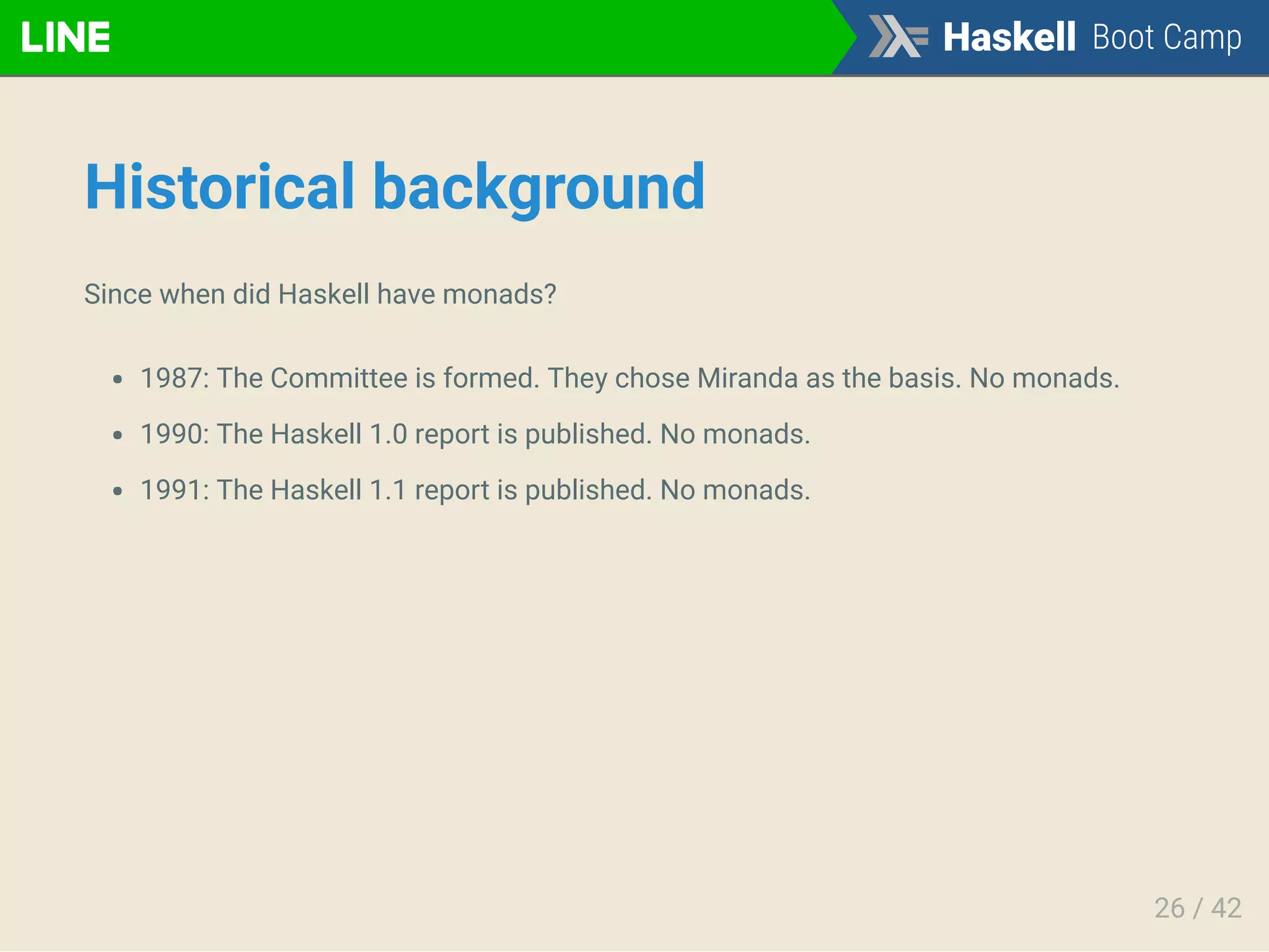
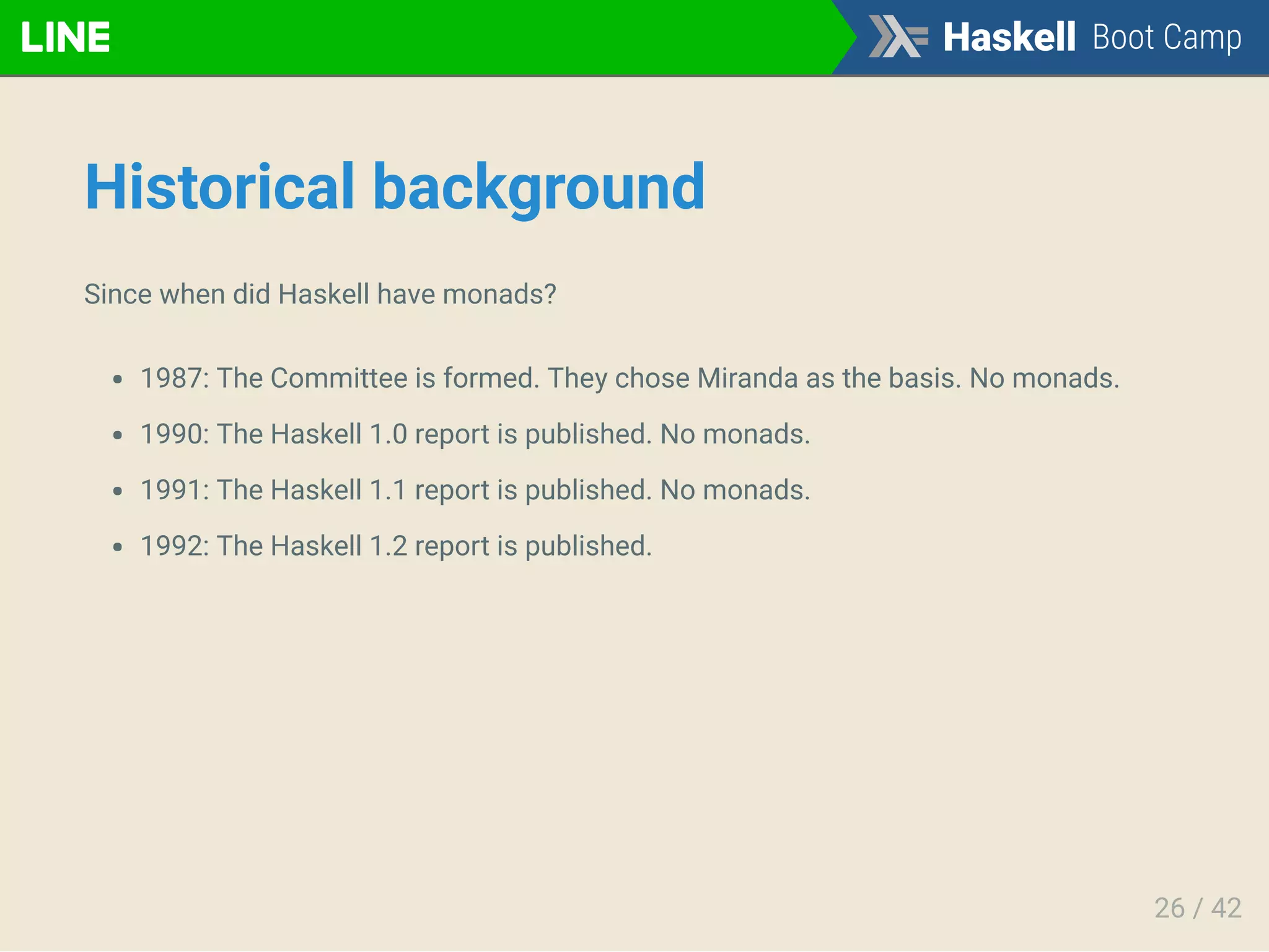


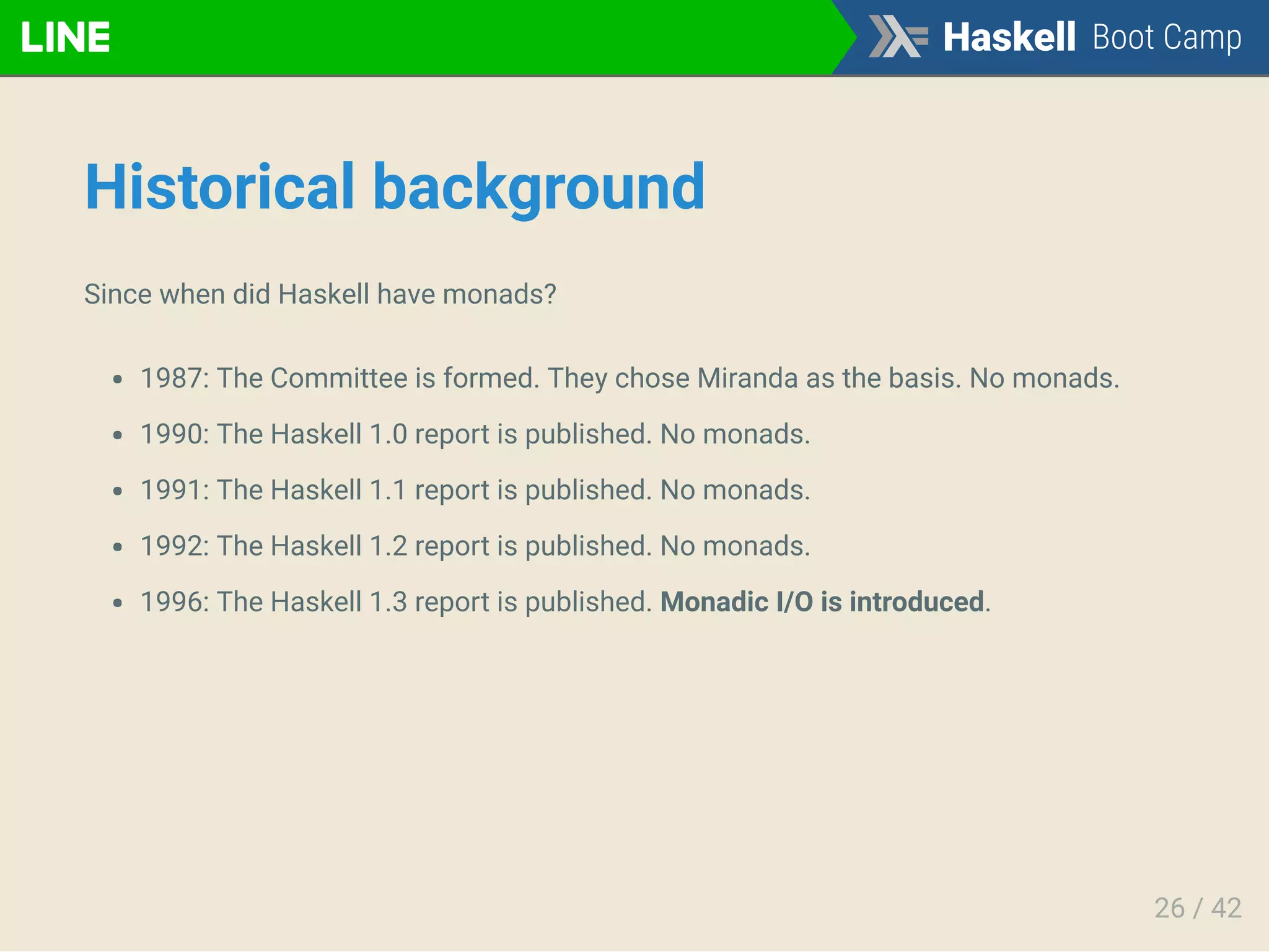
![Historical background
Since when did Haskell have monads?
1987: The Committee is formed. They chose Miranda as the basis. No monads.
1990: The Haskell 1.0 report is published. No monads.
1991: The Haskell 1.1 report is published. No monads.
1992: The Haskell 1.2 report is published. No monads.
1996: The Haskell 1.3 report is published. Monadic I/O is introduced.
Monadic I/O has been in use in the community first. (?!)
Haskell 1.3, reflecting such community status, completely abolished the
conventional [Response] -> [Request] I/O and introduced monadic I/O
and the do syntax.
26 / 42](https://image.slidesharecdn.com/themonadfear-170123061915/75/The-monad-fear-49-2048.jpg)



![JavaScript
>>> ['10', '10', '10'].map(parseInt)
30 / 42](https://image.slidesharecdn.com/themonadfear-170123061915/75/The-monad-fear-53-2048.jpg)
![JavaScript
>>> ['10', '10', '10'].map(parseInt)
[10, NaN, 2]
30 / 42](https://image.slidesharecdn.com/themonadfear-170123061915/75/The-monad-fear-54-2048.jpg)
![JavaScript
>>> ['10', '10', '10'].map(parseInt)
[10, NaN, 2]
Just as you don't need to know JavaScript to use JavaScript
You don't need to understand monad to use Haskell
30 / 42](https://image.slidesharecdn.com/themonadfear-170123061915/75/The-monad-fear-55-2048.jpg)
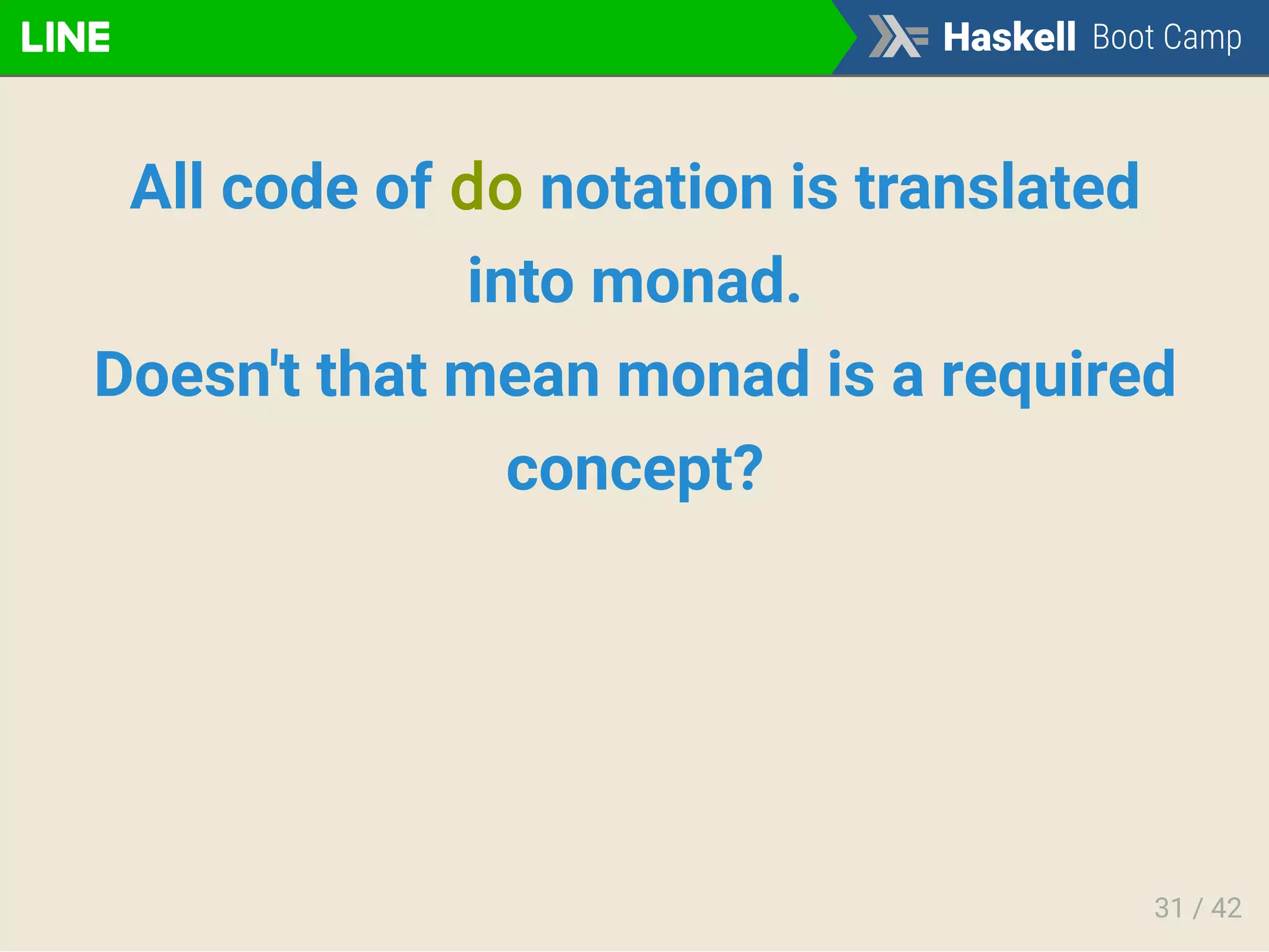
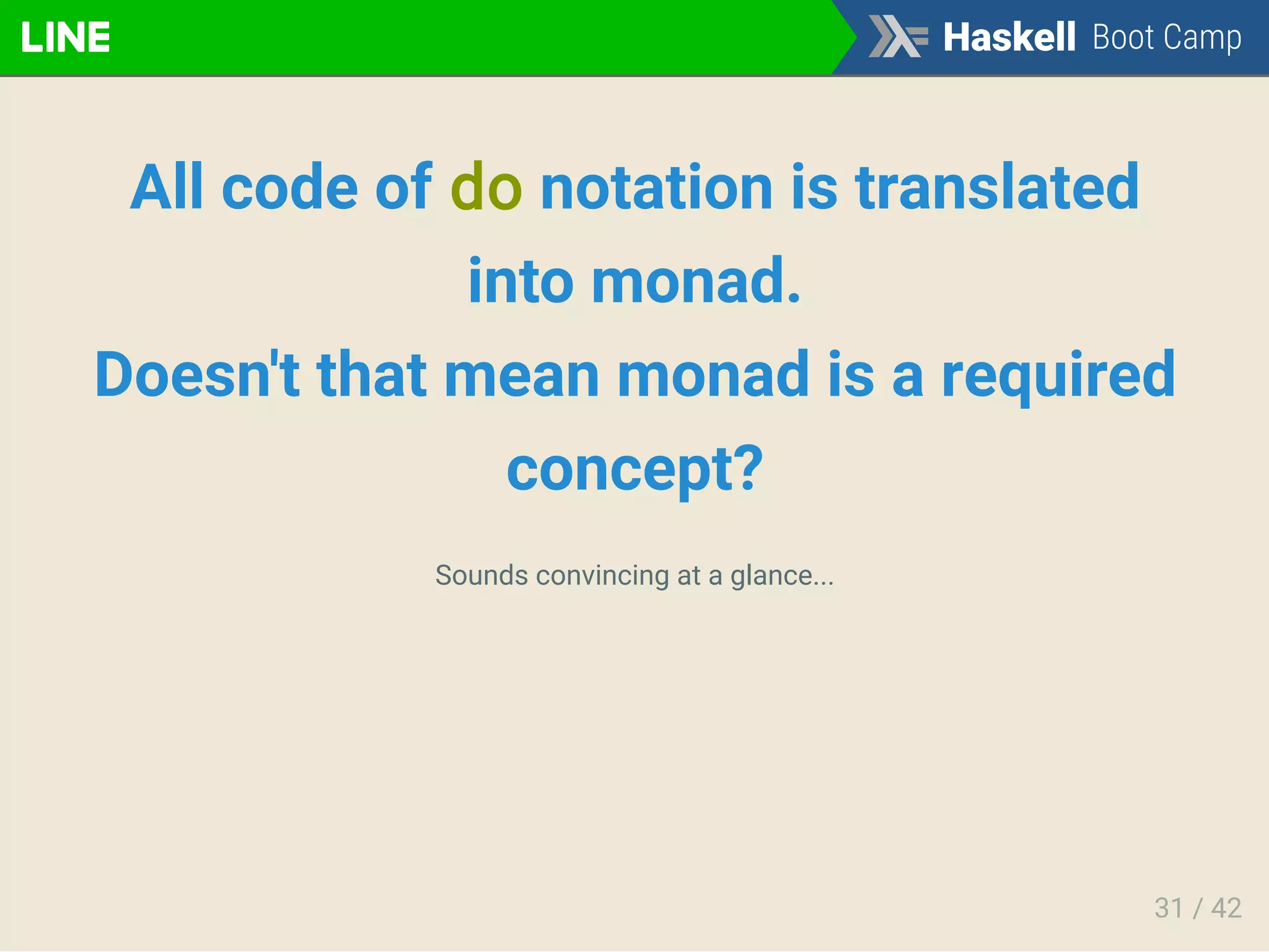




![Even if you do understand...
Understanding the concept called monad, and actually using monadic types (IO, ST,
[], Maybe, ...) are a completely different matter.
Monad in category theory and monad in Haskell are, again, different.
35 / 42](https://image.slidesharecdn.com/themonadfear-170123061915/75/The-monad-fear-62-2048.jpg)
![Even if you do understand...
Understanding the concept called monad, and actually using monadic types (IO, ST,
[], Maybe, ...) are a completely different matter.
Monad in category theory and monad in Haskell are, again, different.
Attempting to learn how to use monads by understanding what they are is
like asking "What is a musical instrument?" and then assuming once you
know the answer to that, you'll be able to play all of the musical instruments.
~kqr, The "What Are Monads?" Fallacy (2015)
35 / 42](https://image.slidesharecdn.com/themonadfear-170123061915/75/The-monad-fear-63-2048.jpg)
